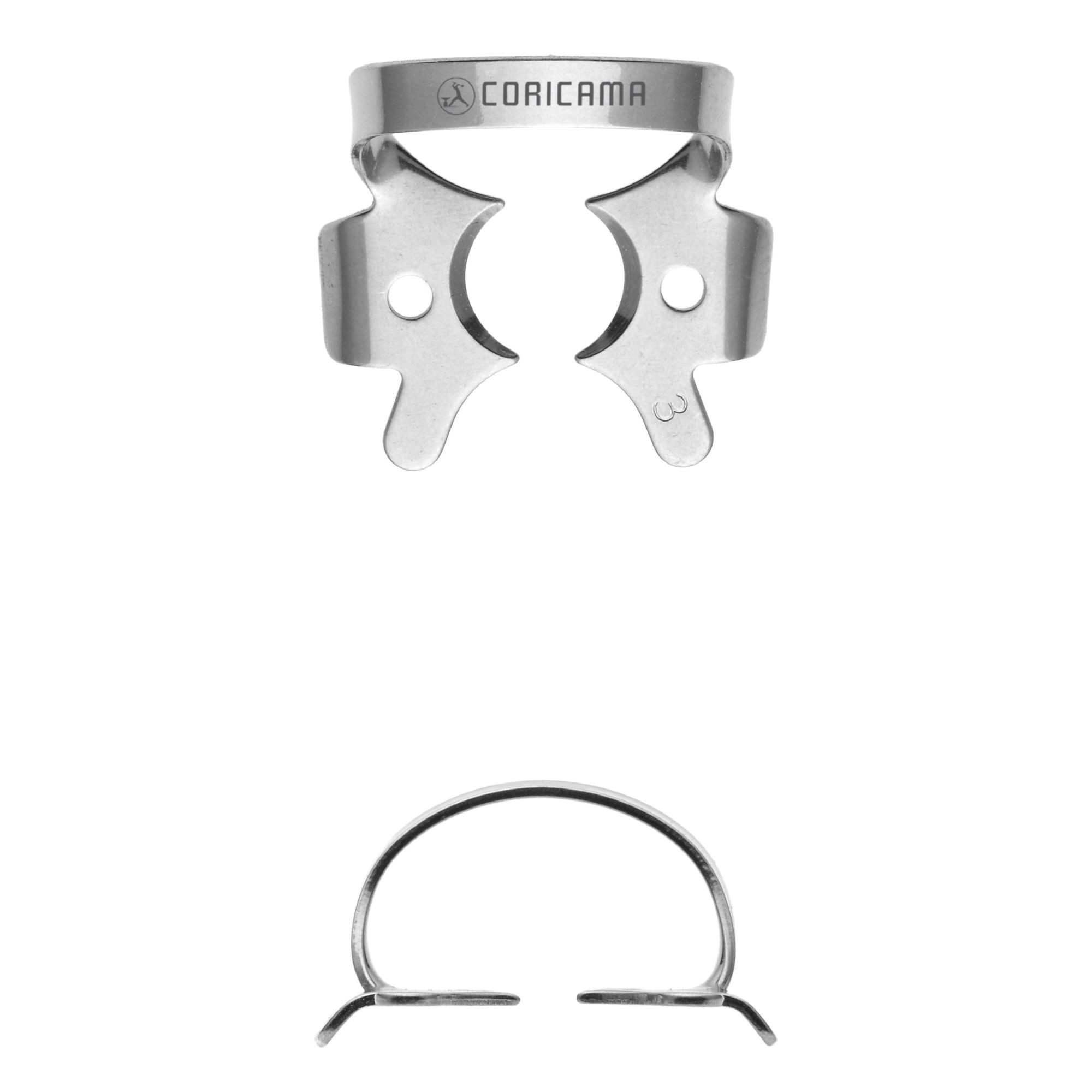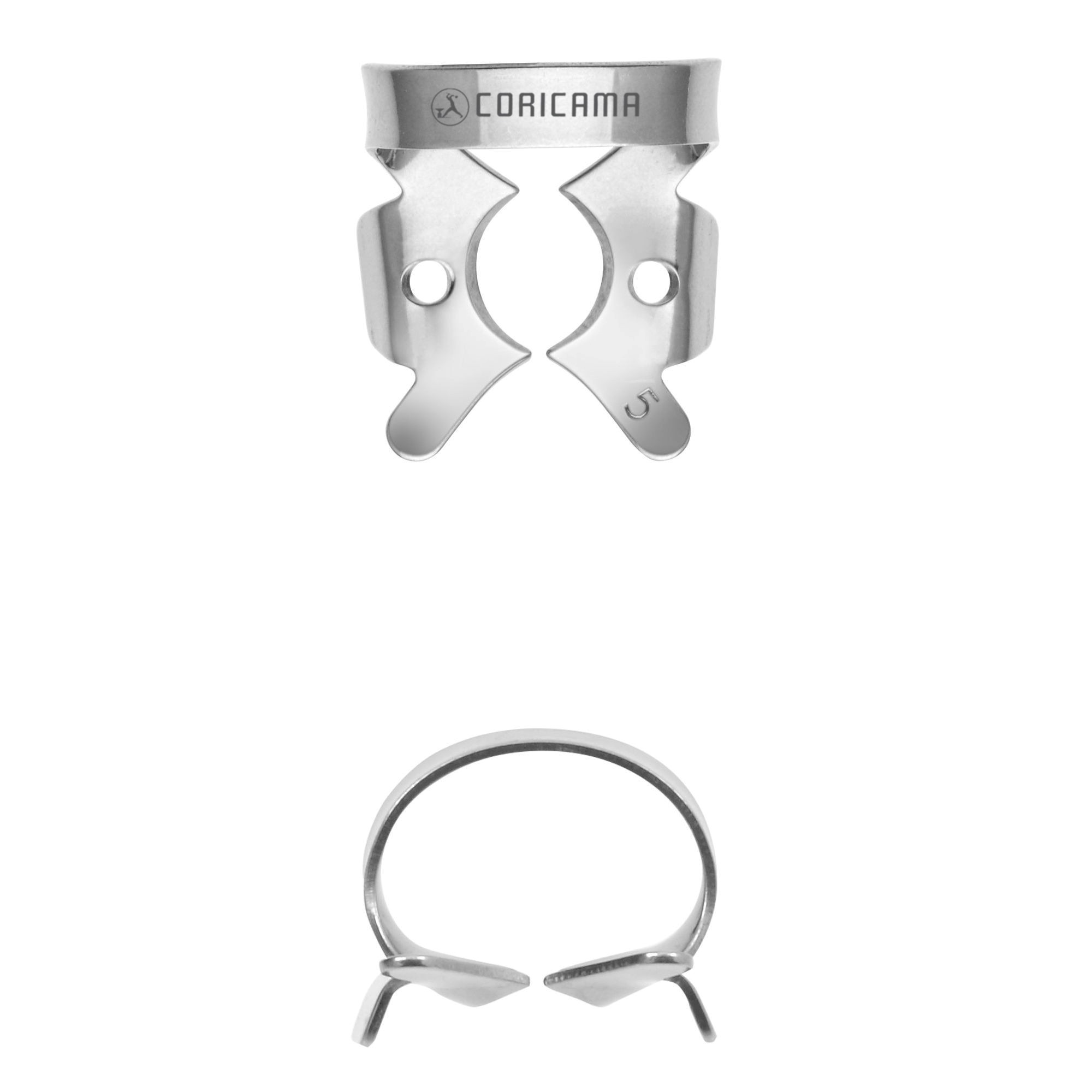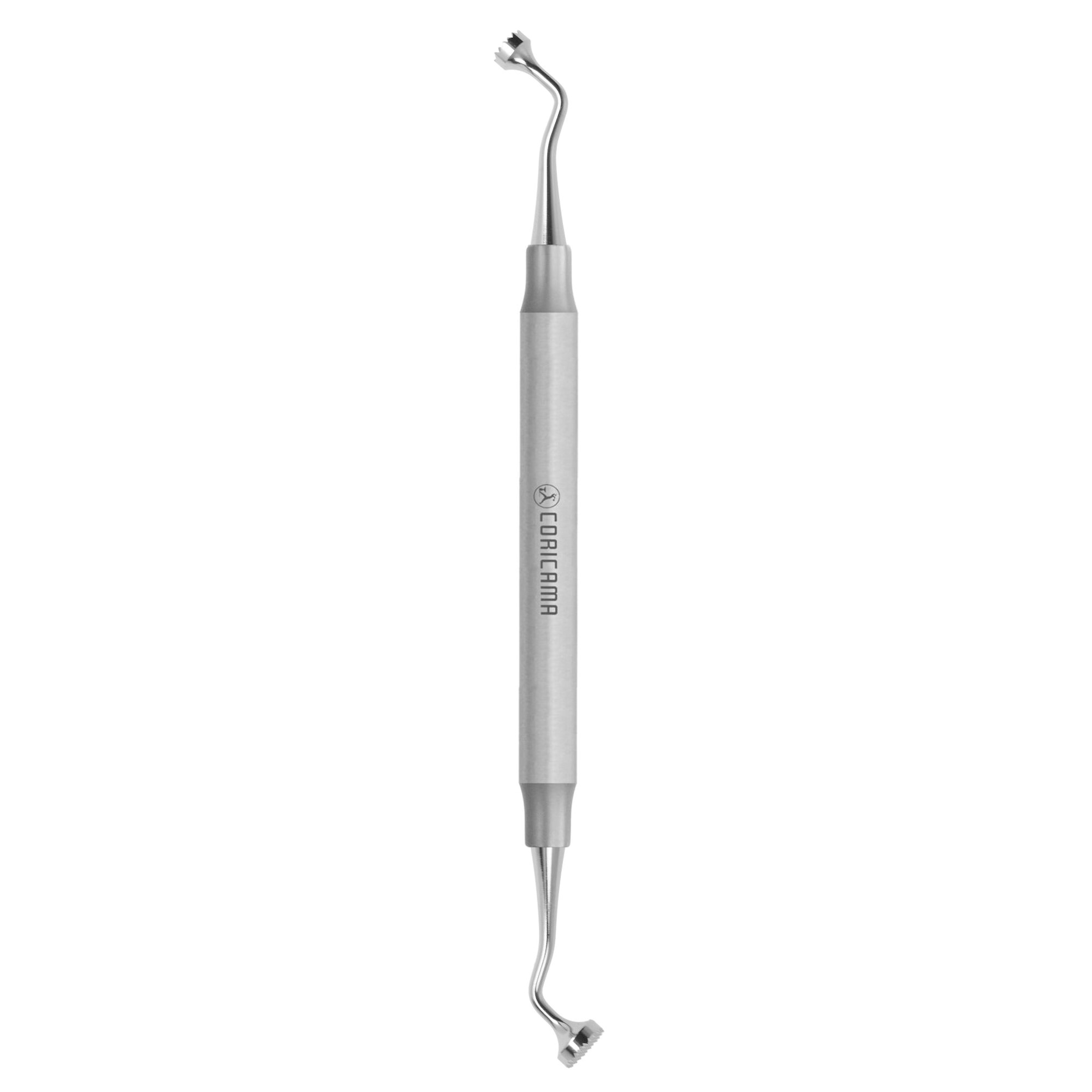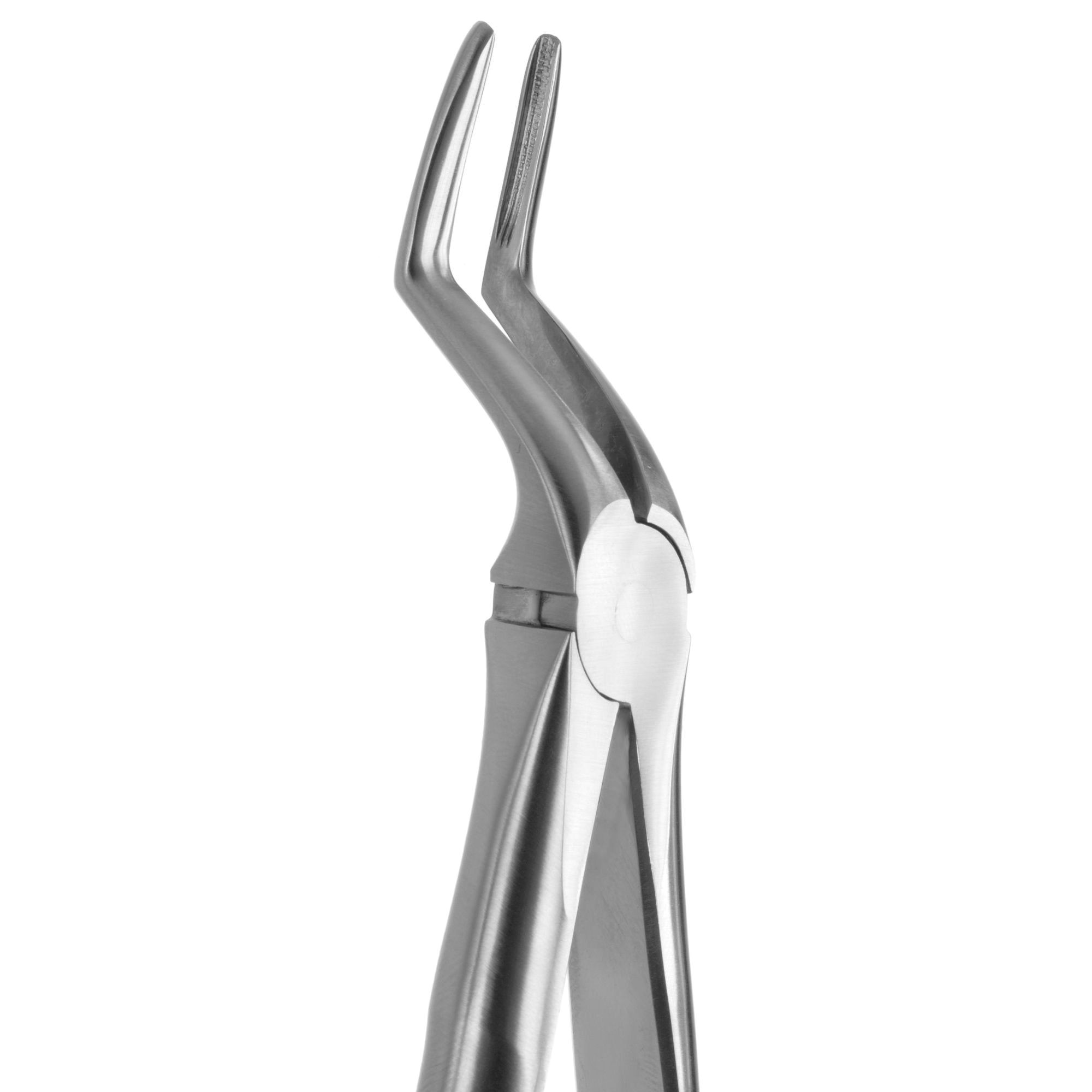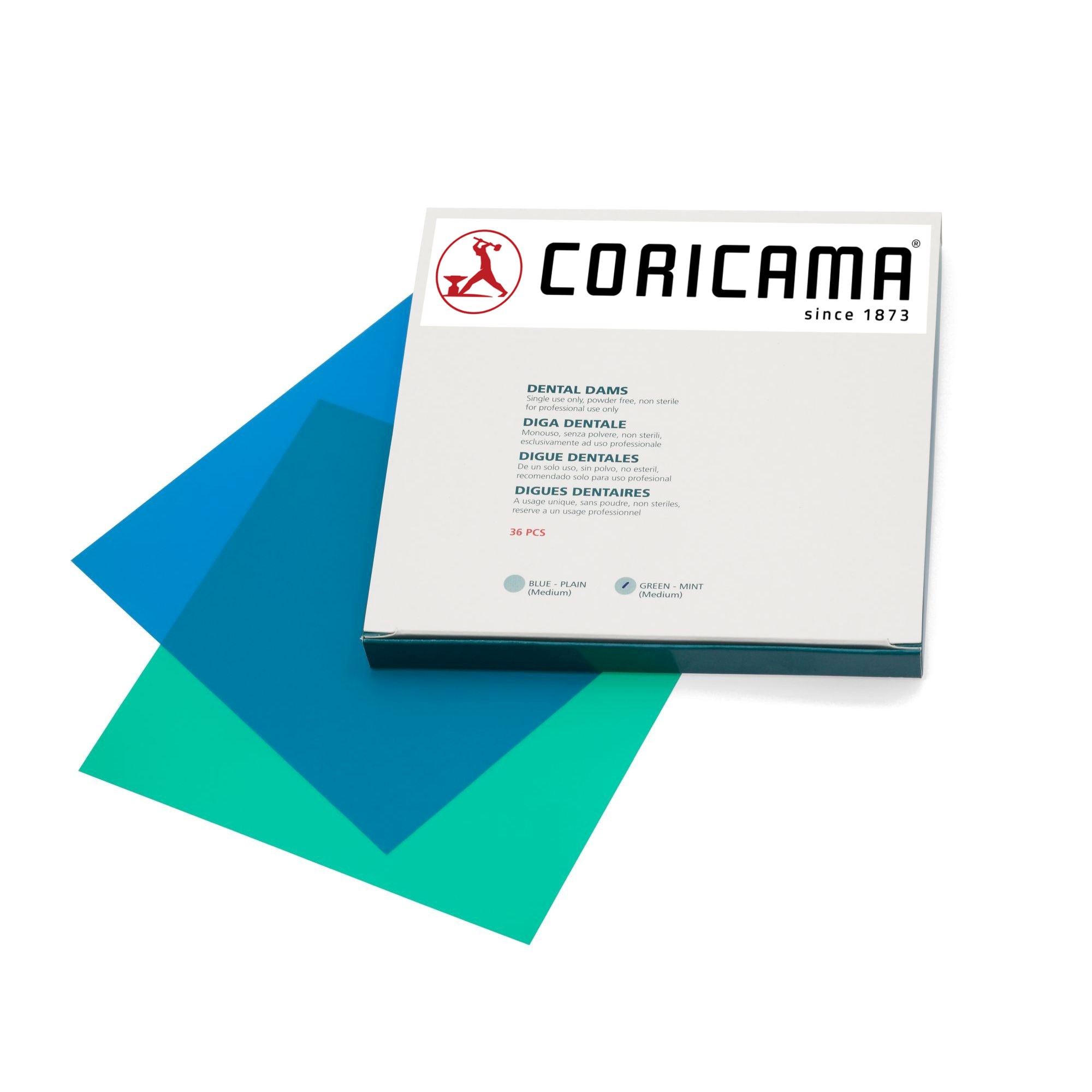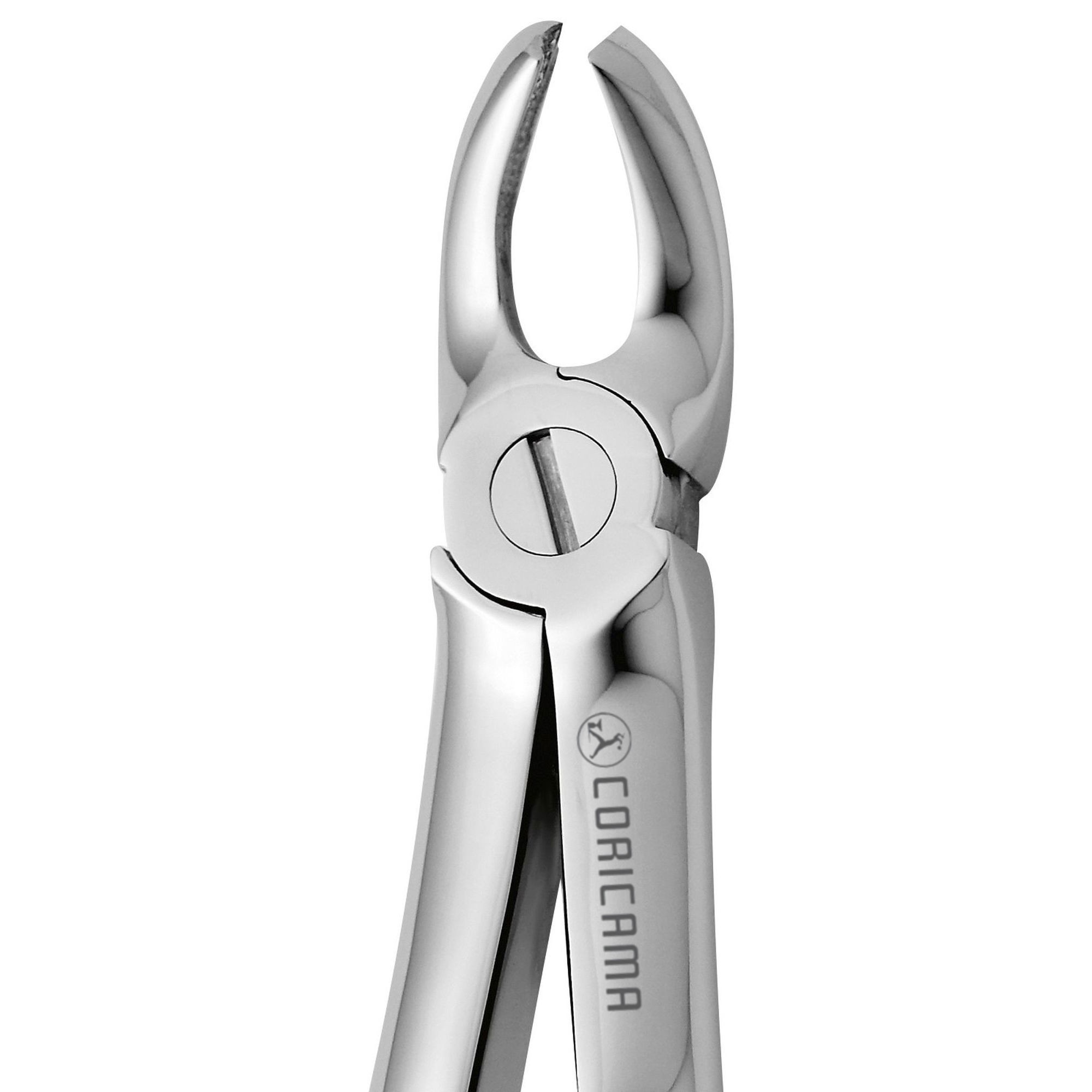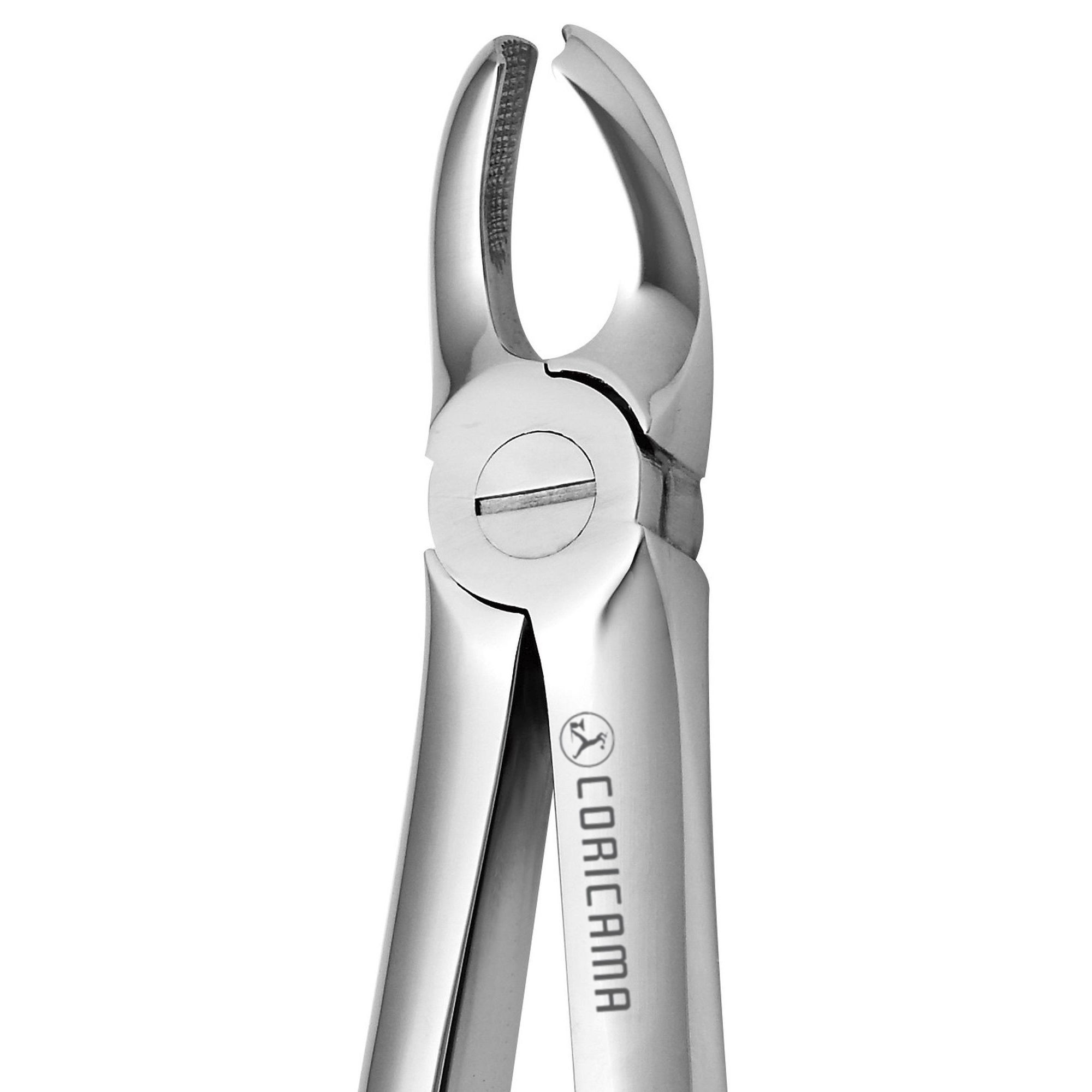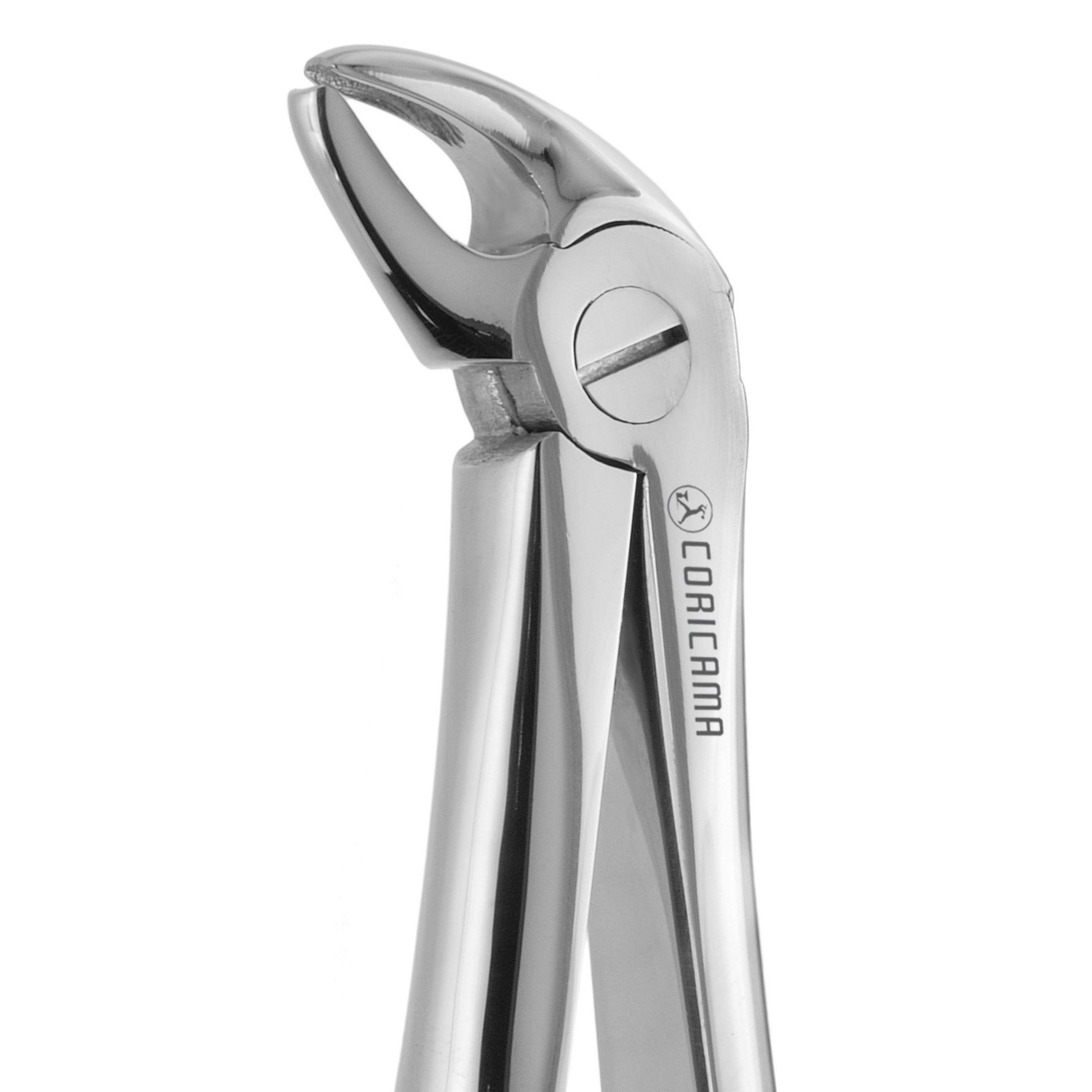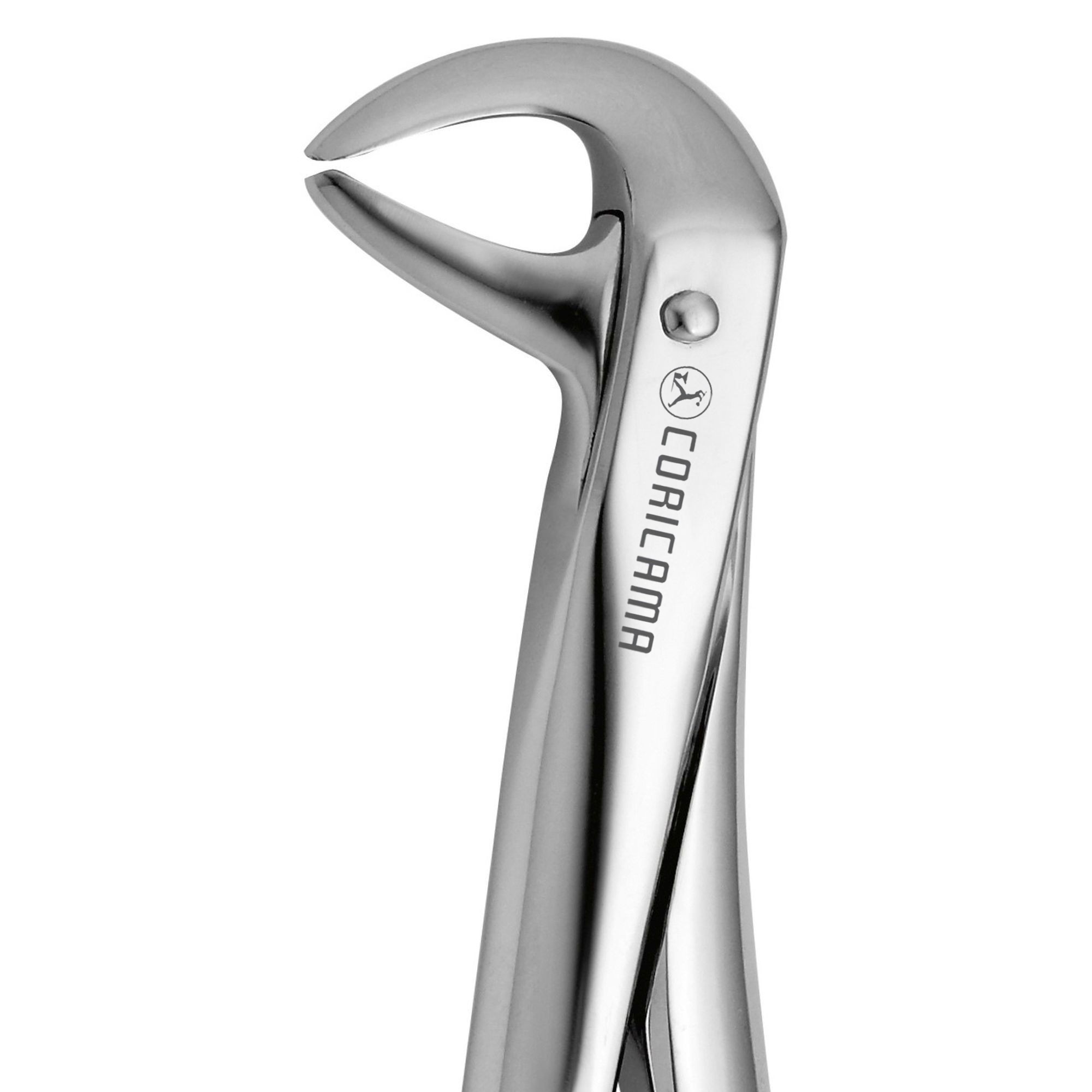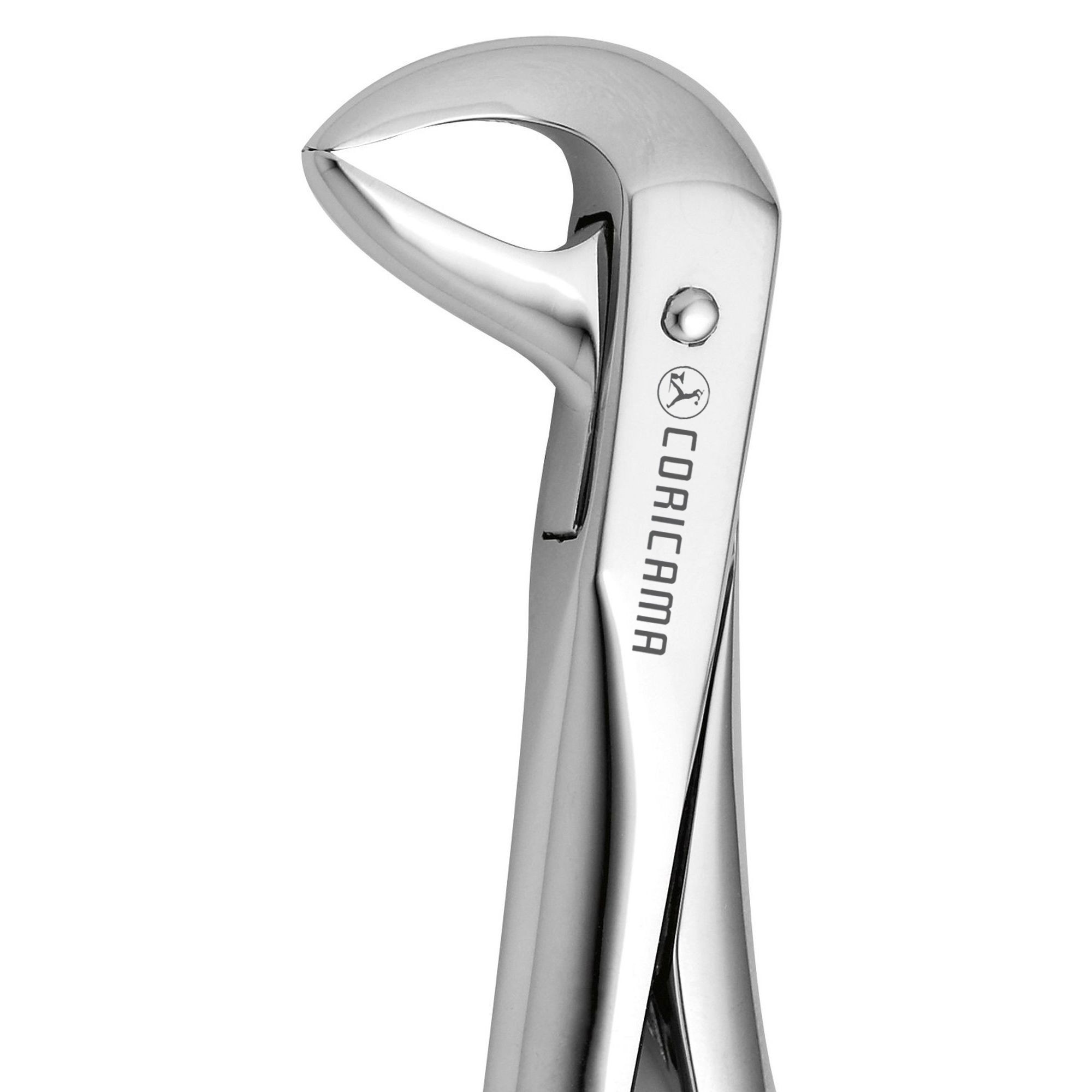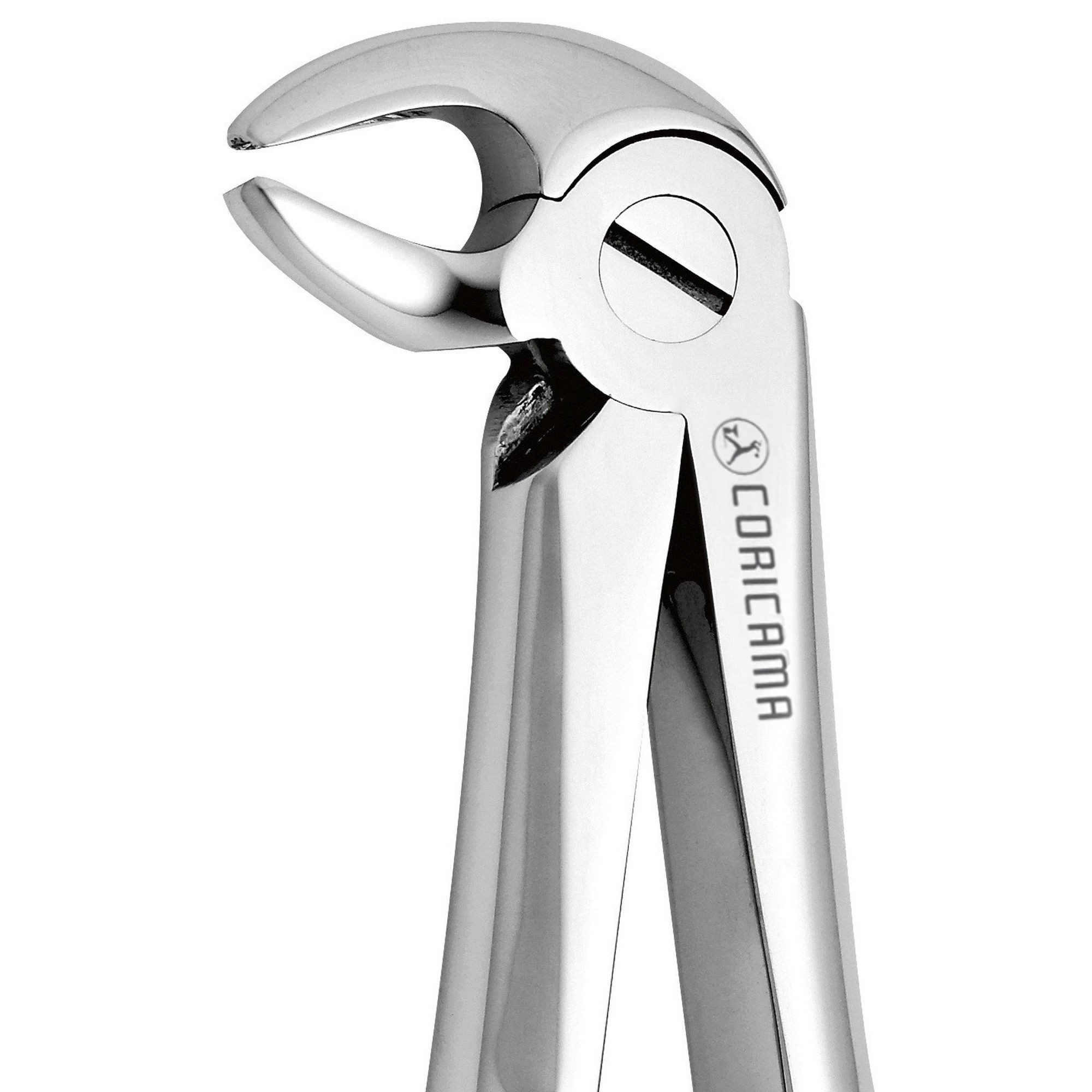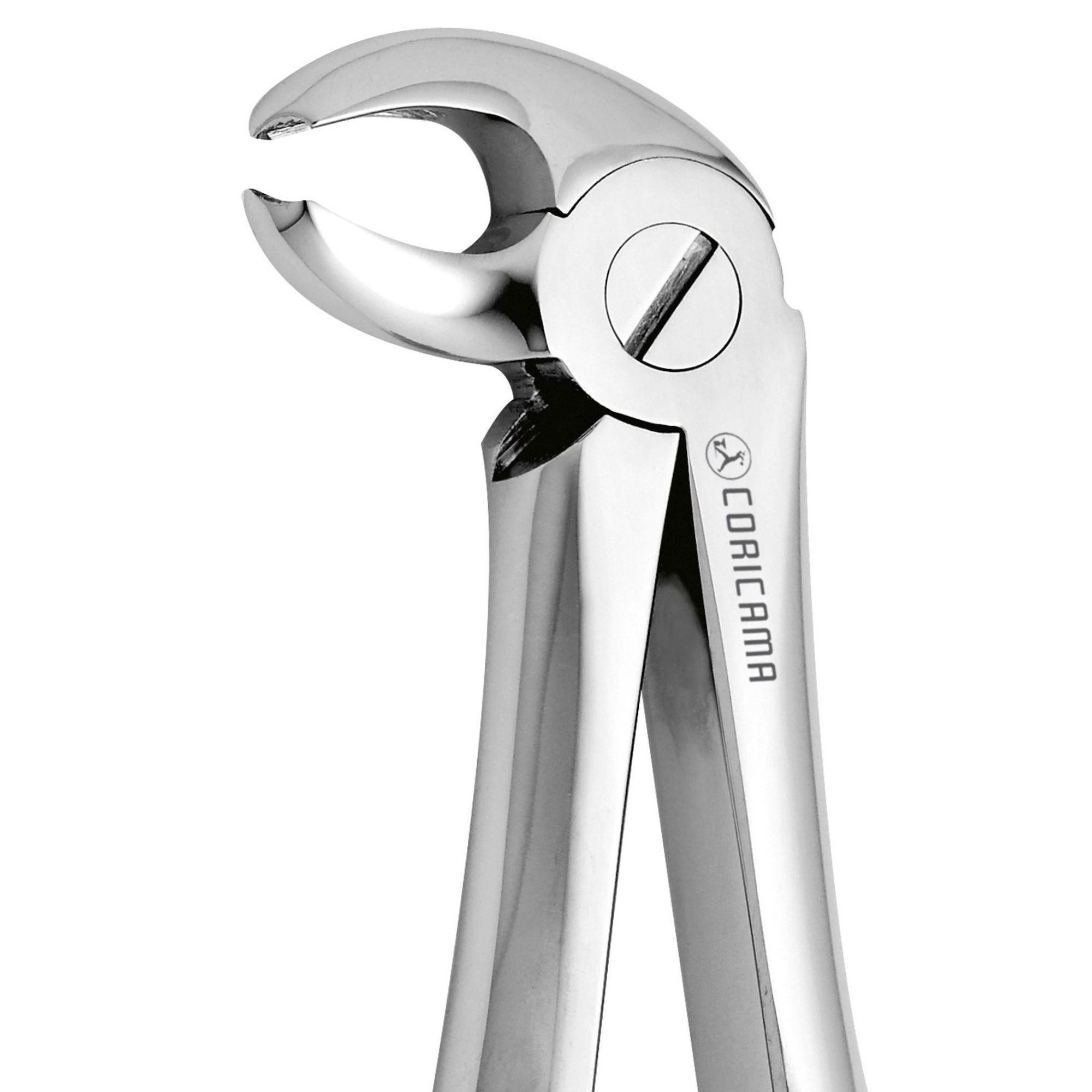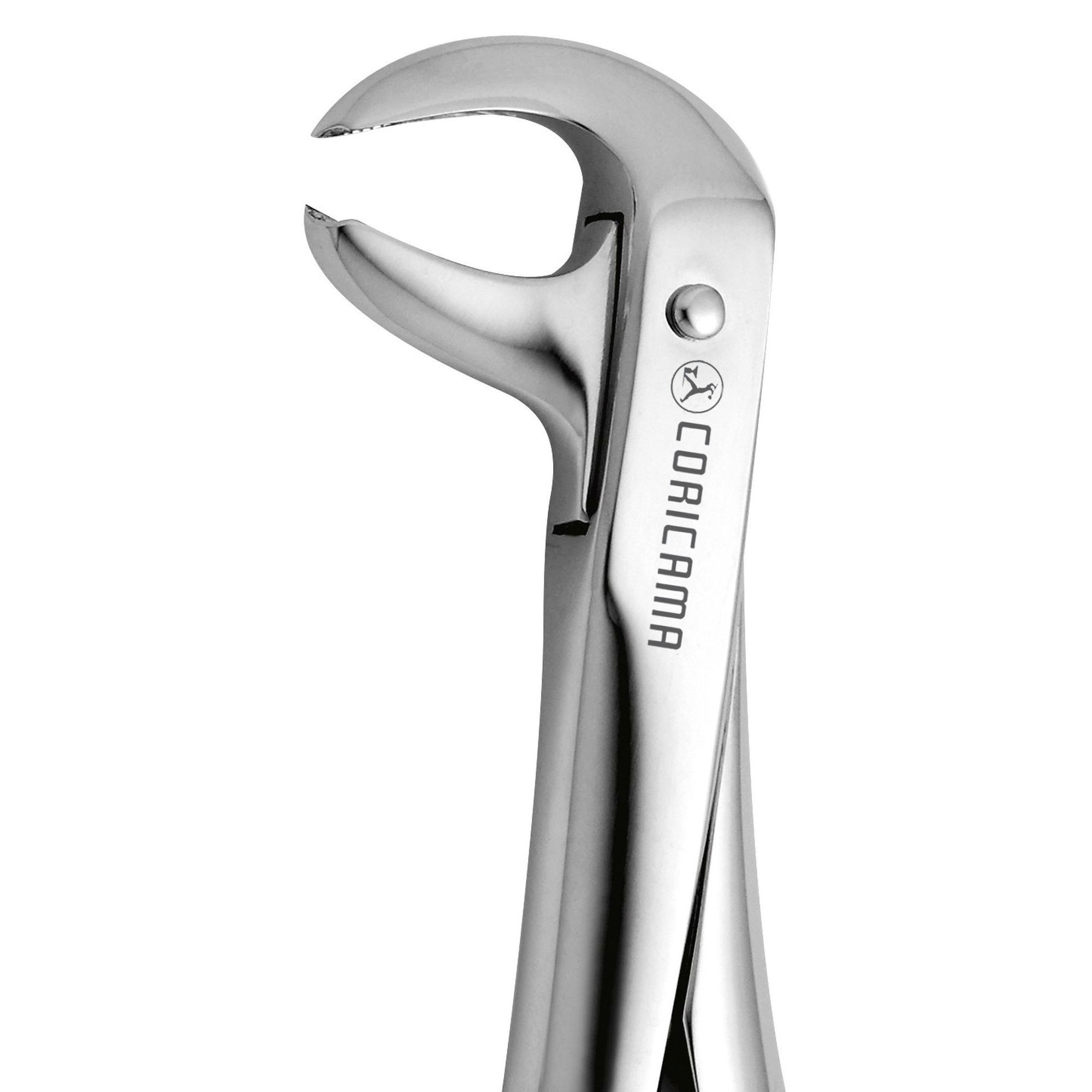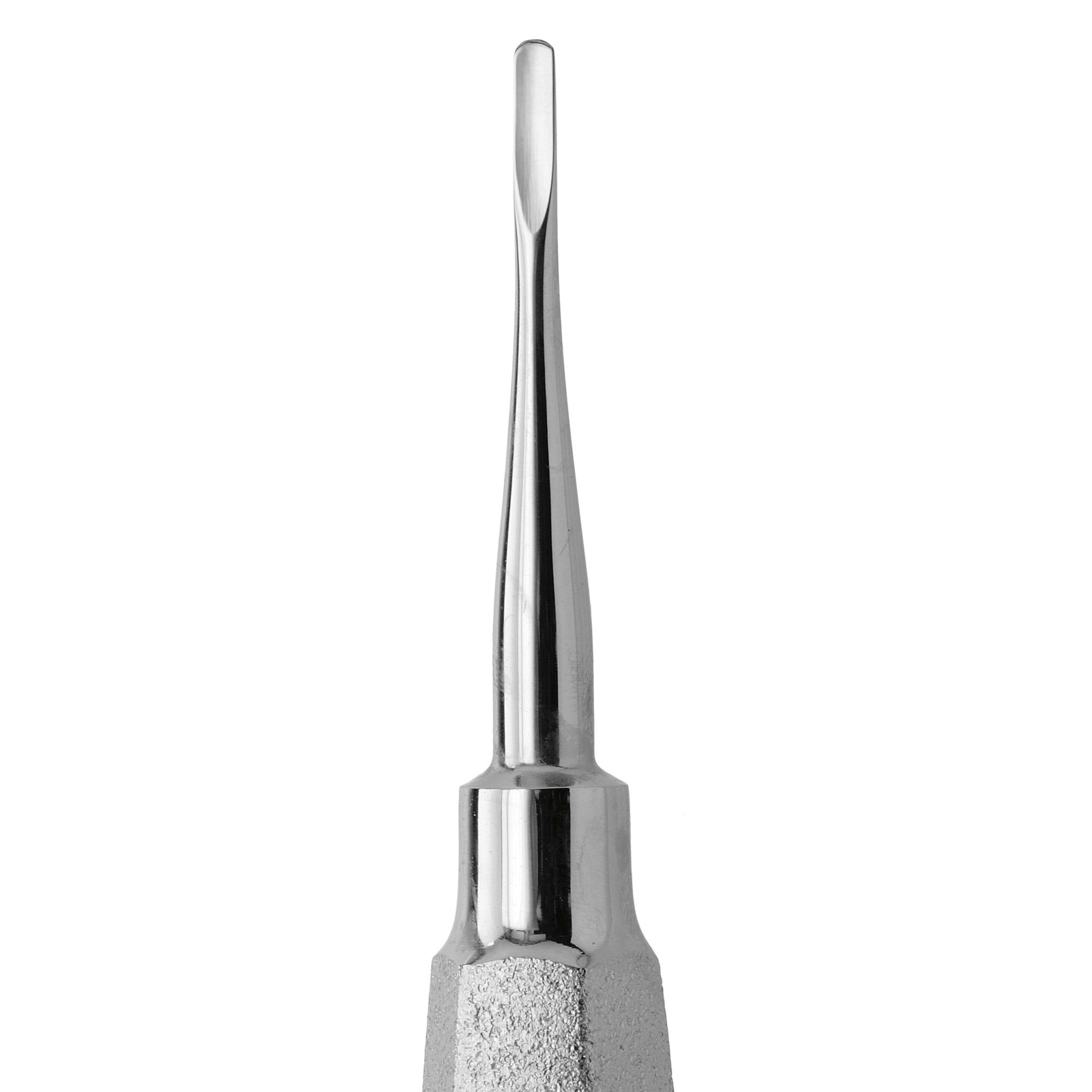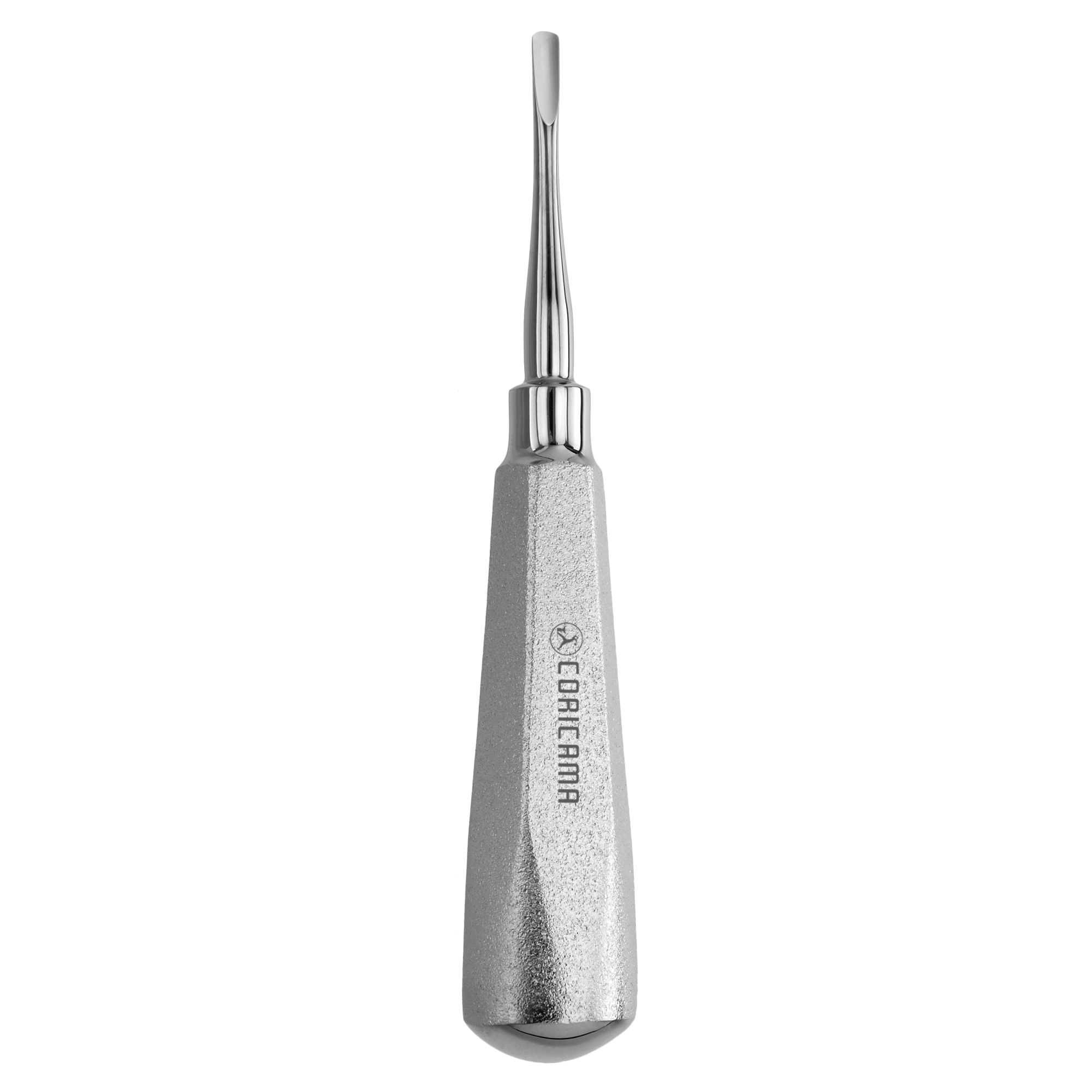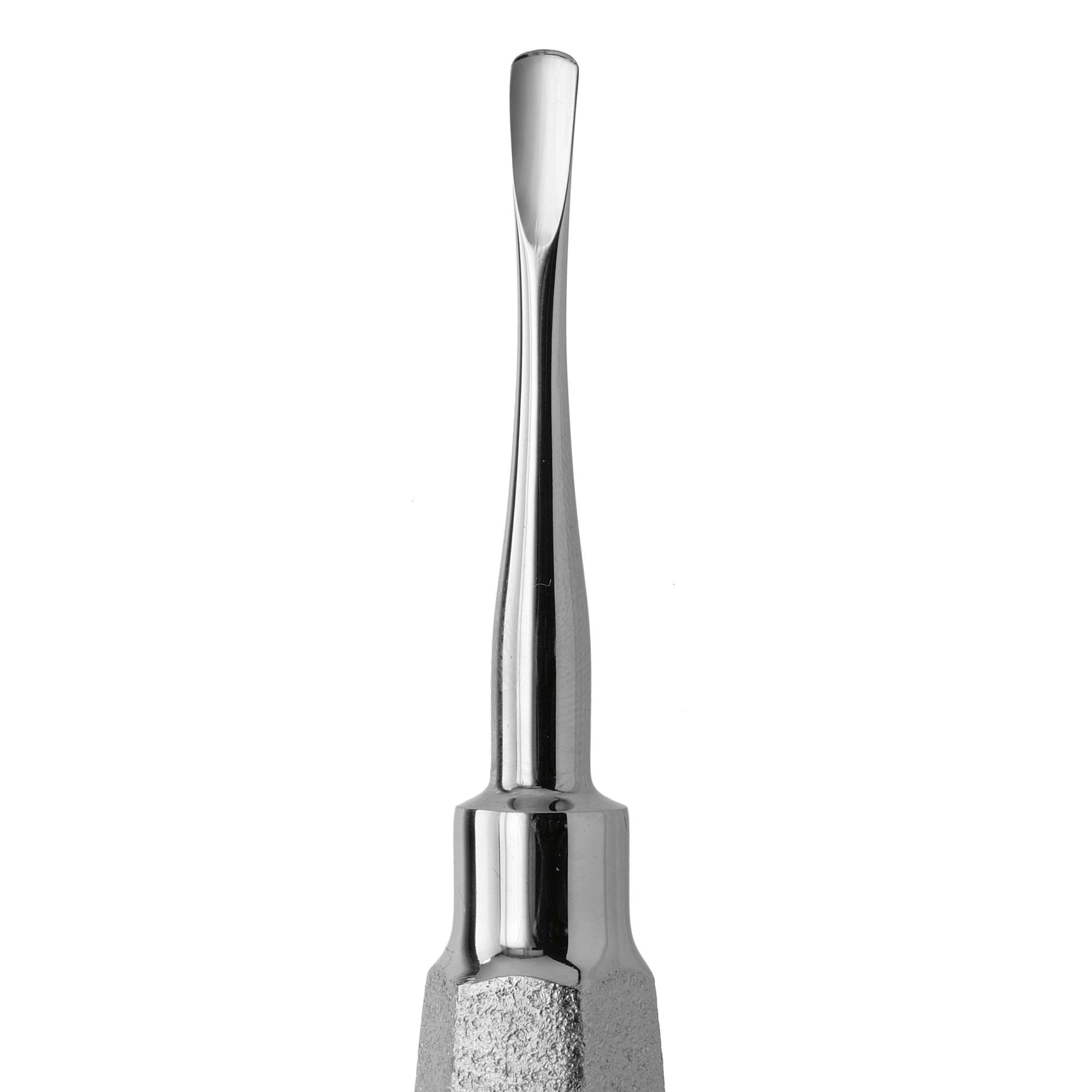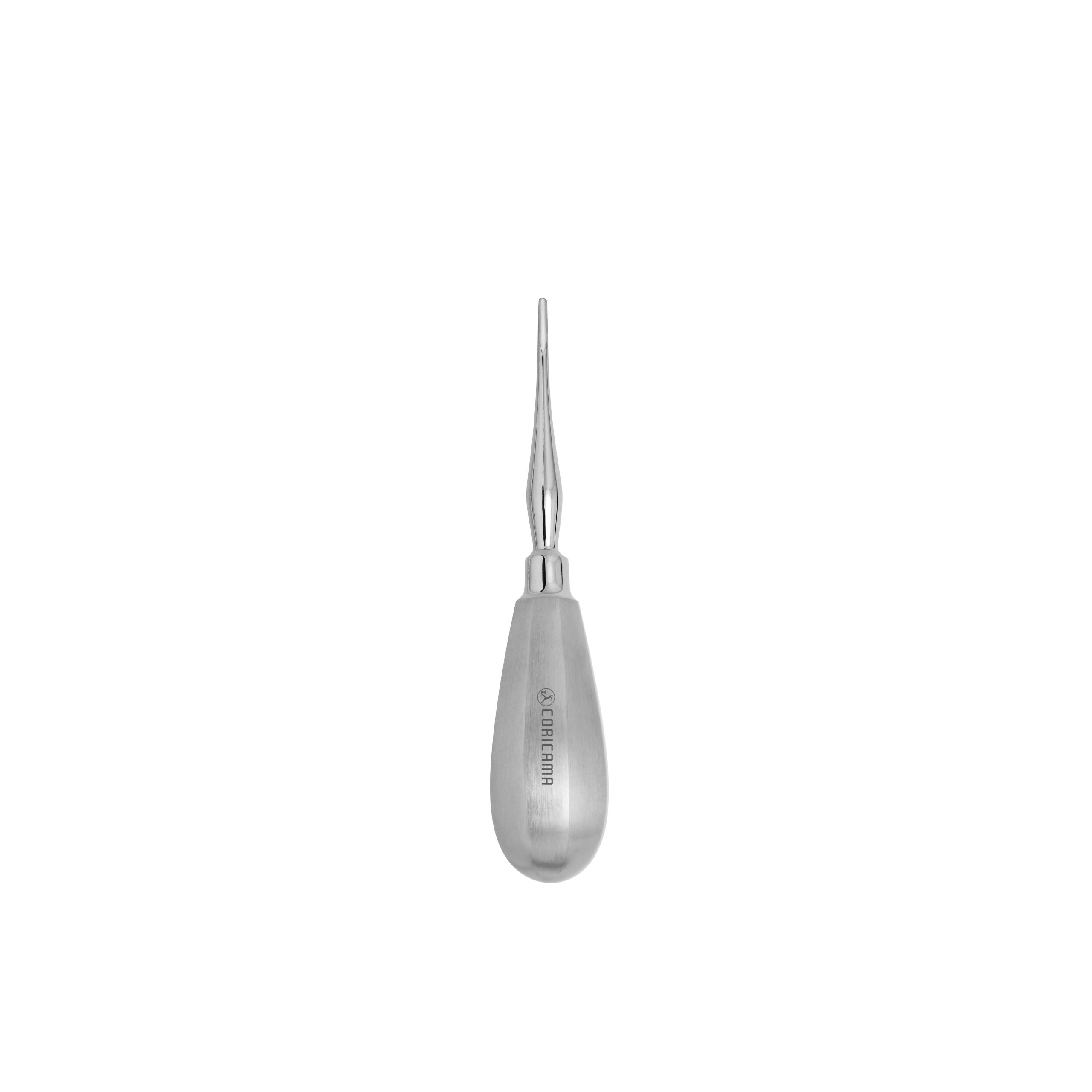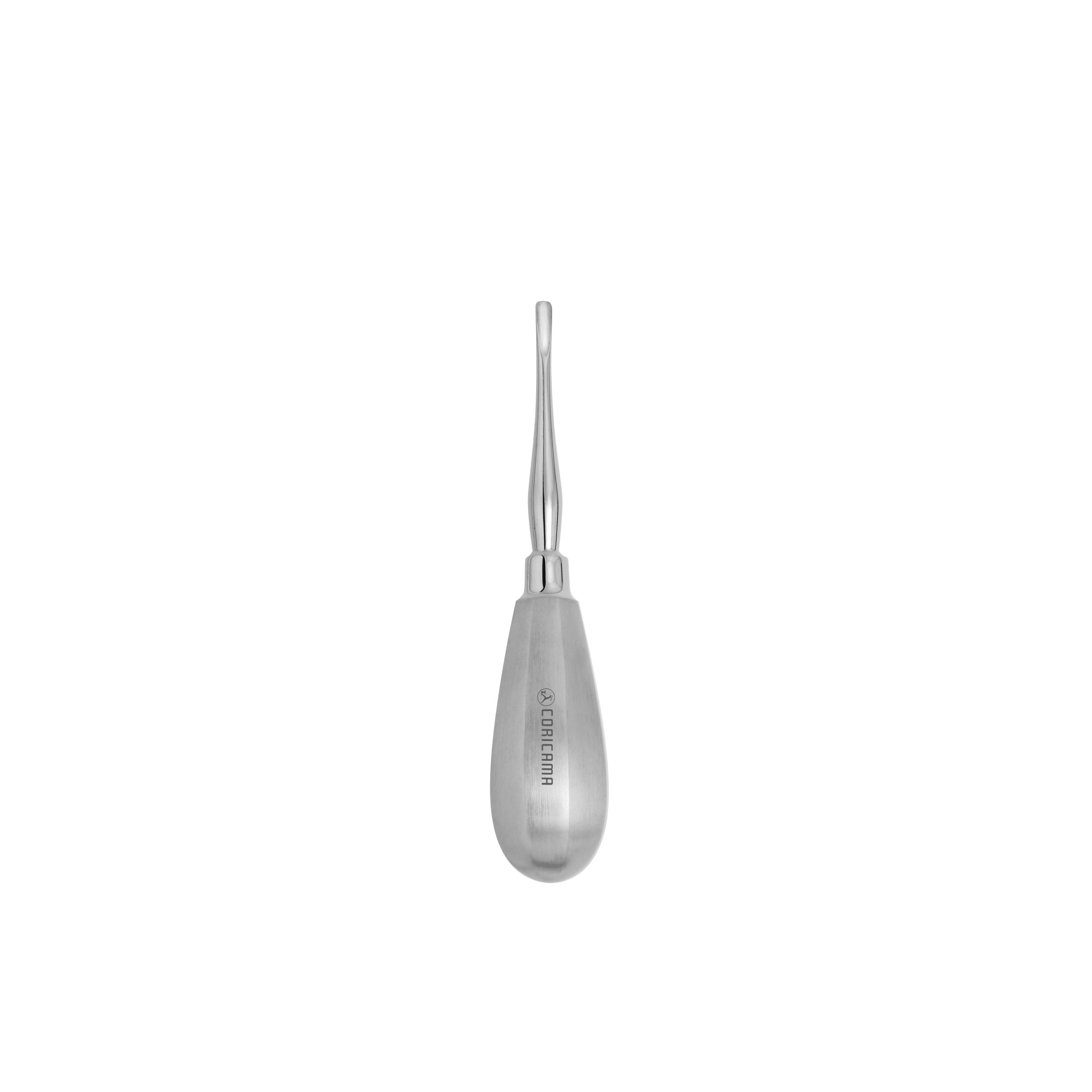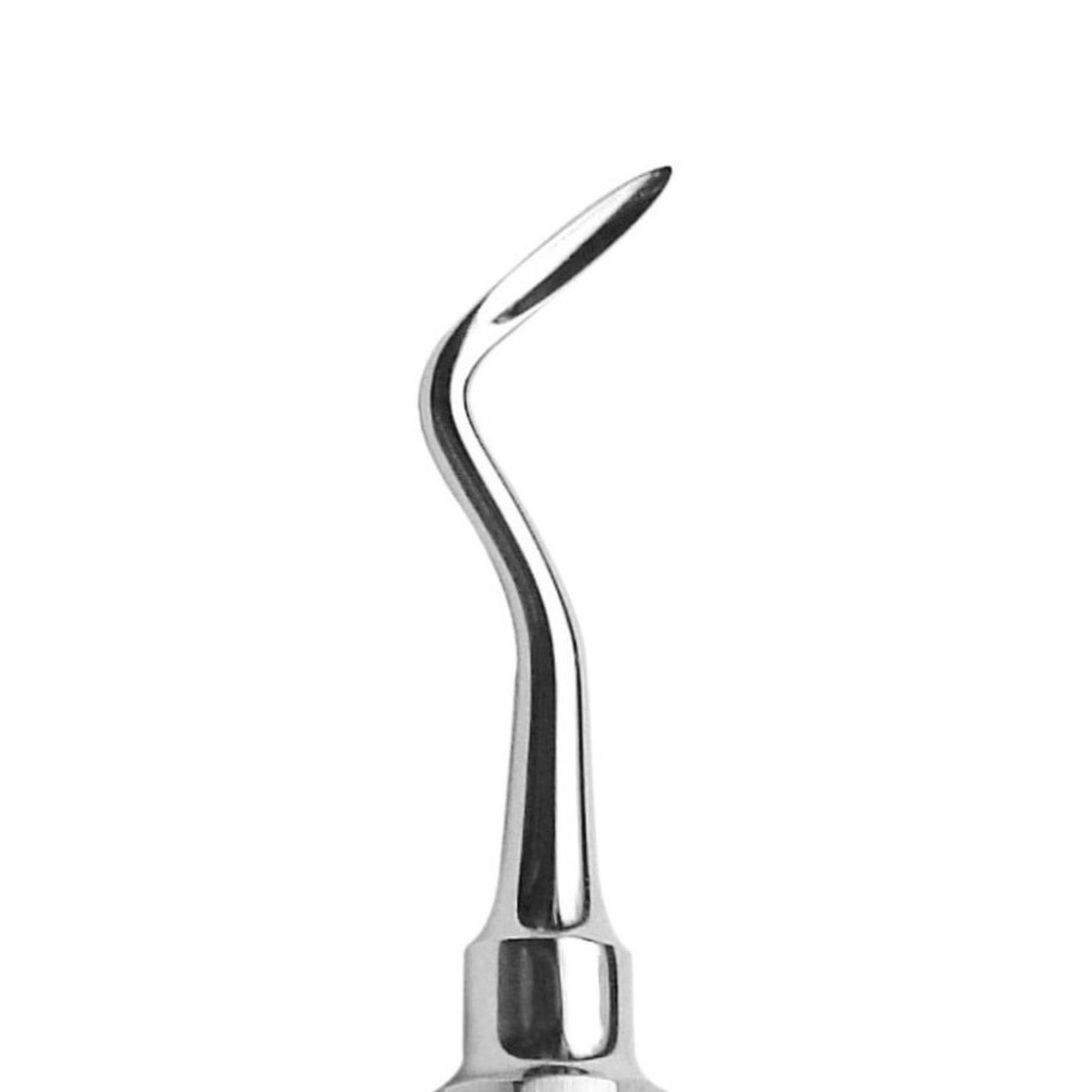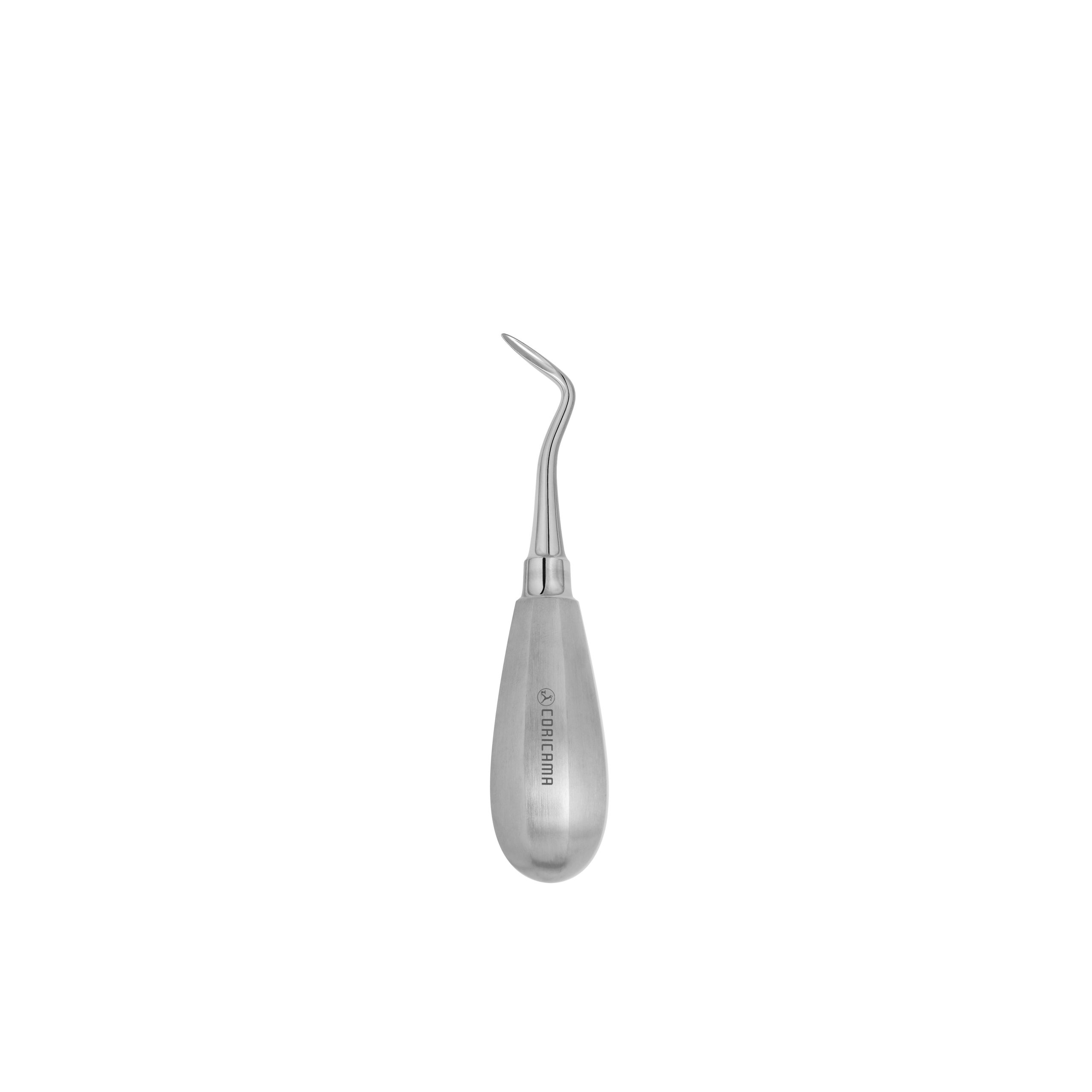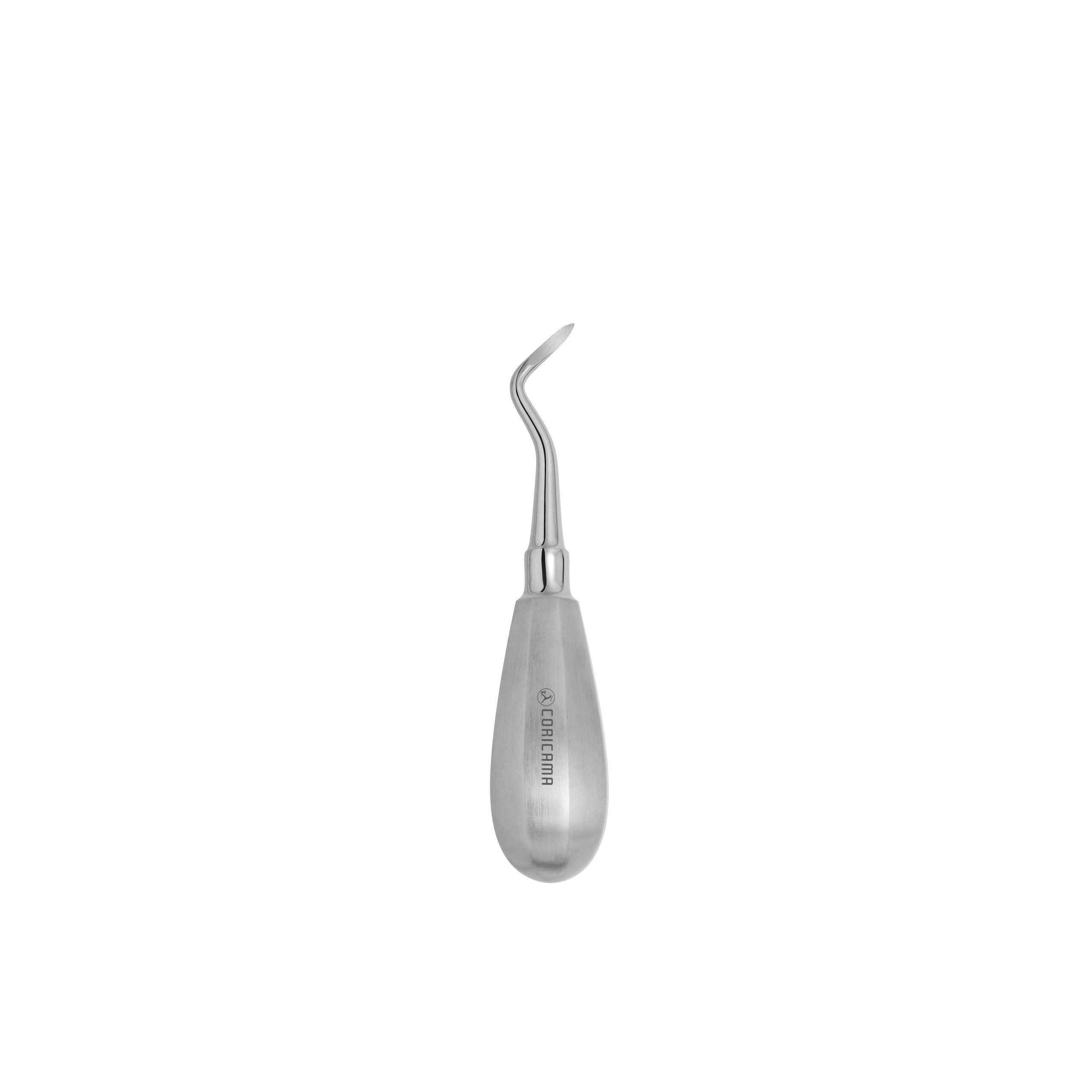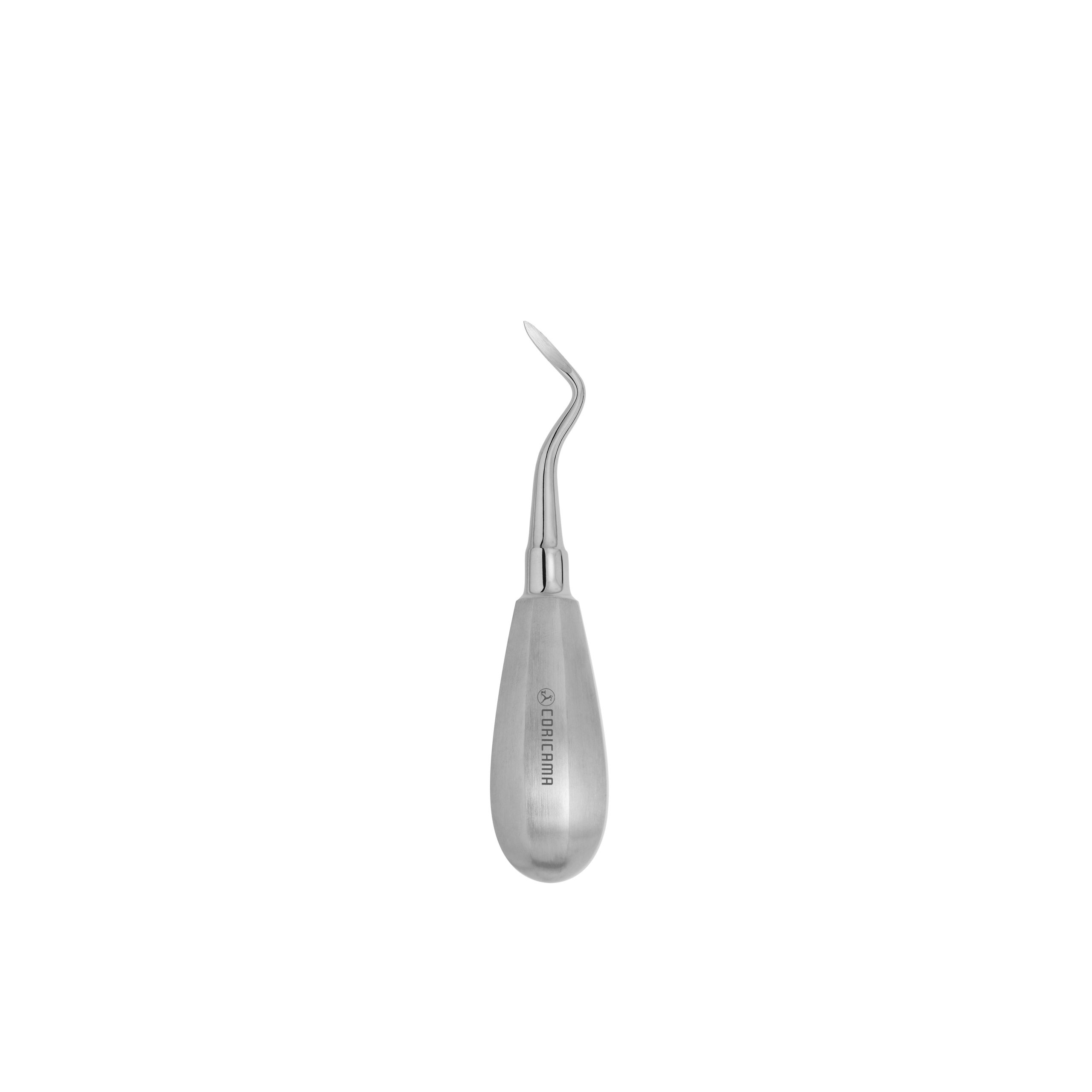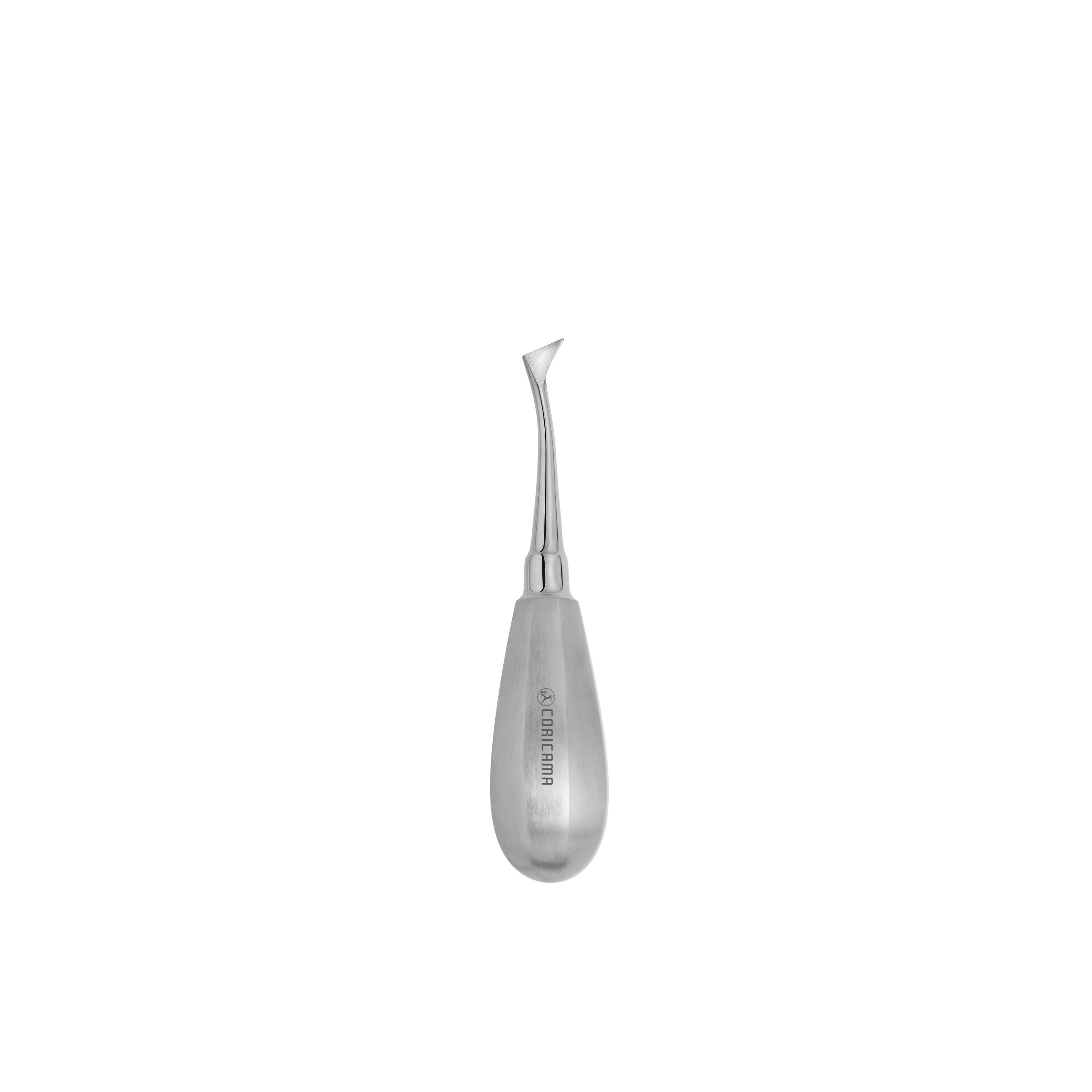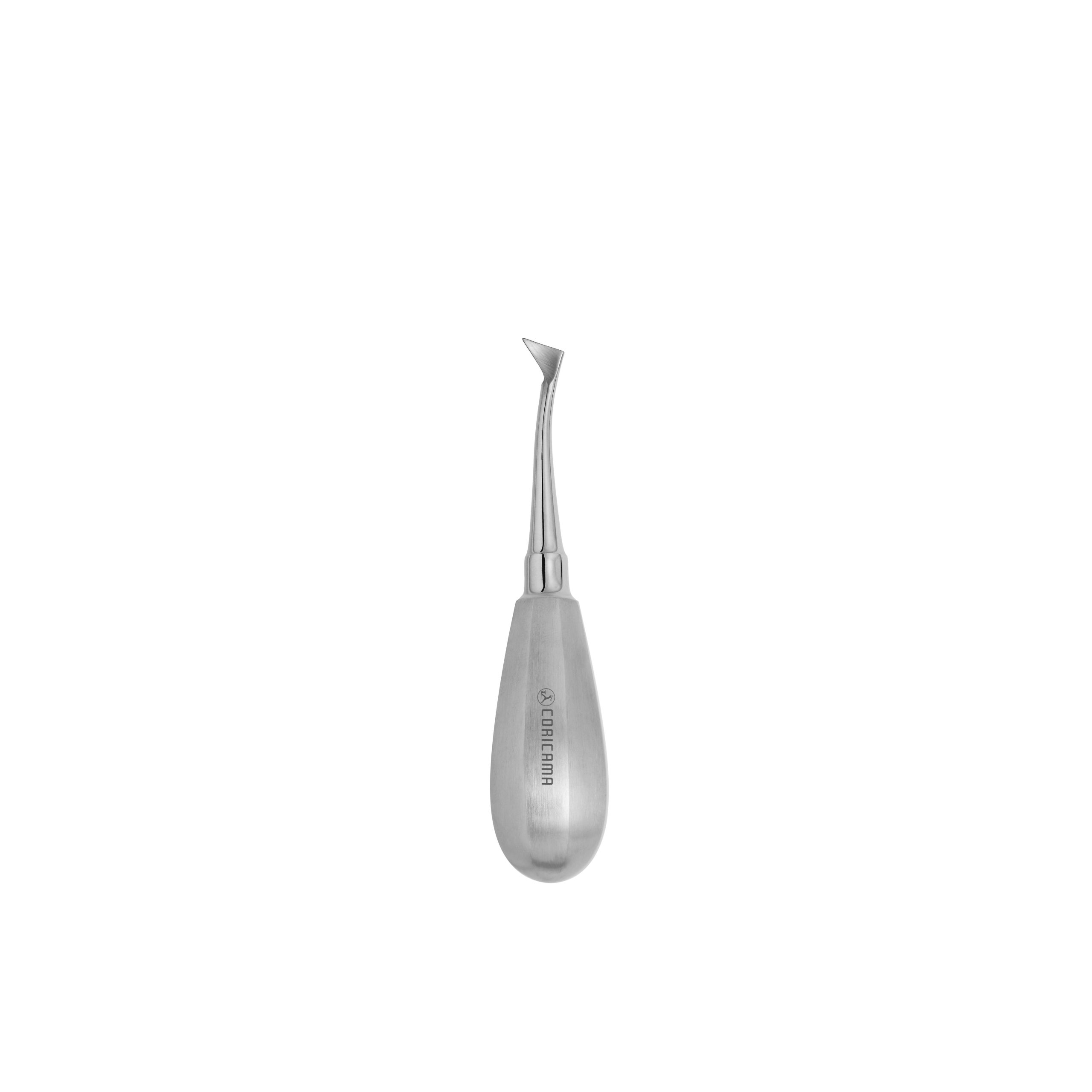Shop by Brands
Top Selling Products
Category: Instruments
-
662310
CORICAMA since 1873…. ITALIAN STYLE and ADVANCED TECHNOLOGY
CORICAMA use only the most suitable steels for the production of surgical instruments to achieve instruments that are both aesthetic and functional.
CORICAMA is a guarantee of high-quality instruments that perfectly fit to the professional sensitivity and contribute to patient well-being. CORICAMA is constantly next to the more demanding dentists and those who seek only the best for their work.
CORICAMA ROOT ELEVATOR LUSSATORE 3mm STRAIGHT #662310
Used as a lever for the extraction of a tooth or retained roots. It is pushed in between the gums and the external part of the tooth and used to loosen the tissue surrounding the tooth.
The blade transmits a force, generated by rotating the handle along its long axis, to the surface of the tooth or root. This produces the displacement of the tooth away from the point of application where the elevator comes into contact with the tooth. The force may be applied perpendicularly to the tooth, with the elevator placed in the interdental space, or along its long axis. Since considerable force is applied to the tooth, it’s necessary to prevent the elevator from slipping. During its use, the operators index finger should therefore be extended over the length of the blade to act as a support on adjacent hard tissues.
The curved blade of the elevator is placed on the root surface, thus lying between the tooth and the alveolar bone which acts as a fulcrum around which the elevator is turned. The rotation of the elevator will produce a force which dislocates the tooth and tends to displace it out of its socket. An equal force will also be applied to the fulcrum, so it is important to ensure that this alveolar bone is capable of resisting such a force and that is not an adjacent tooth which may, as a result, become inadvertently loosened or displaced.
Elevators must be used with caution when extracting teeth to avoid generating excessive and potentially damaging forces.
Sharp and thin blades, allow a gentle penetration cutting the periodontal ligaments.
Thanks to its form with the Lussatore (Luxator) root elevators the widening of the alveolar becomes easy, reducing the use of tooth forcep.
Luxators are sharp, fine, slightly flexible single-bladed used to incise the soft tissue attachment of a tooth while sliding the periodontal space to an apical position. Their subsequent rotation then luxates and promotes the displacement of the tooth, with a minimum of force and alveolar destruction.
Instrument Name: Luxator 3mm Straight
Tip: Straight 3mm
Tip Material: Stainless Steel
Handle Material: Stainless Steel
-
662320
CORICAMA since 1873…. ITALIAN STYLE and ADVANCED TECHNOLOGY
CORICAMA use only the most suitable steels for the production of surgical instruments to achieve instruments that are both aesthetic and functional.
CORICAMA is a guarantee of high-quality instruments that perfectly fit to the professional sensitivity and contribute to patient well-being. CORICAMA is constantly next to the more demanding dentists and those who seek only the best for their work.
CORICAMA ROOT ELEVATOR LUSSATORE 3mm CURVED #662320
Used as a lever for the extraction of a tooth or retained roots. It is pushed in between the gums and the external part of the tooth and used to loosen the tissue surrounding the tooth.
The blade transmits a force, generated by rotating the handle along its long axis, to the surface of the tooth or root. This produces the displacement of the tooth away from the point of application where the elevator comes into contact with the tooth. The force may be applied perpendicularly to the tooth, with the elevator placed in the interdental space, or along its long axis. Since considerable force is applied to the tooth, it’s necessary to prevent the elevator from slipping. During its use, the operators index finger should therefore be extended over the length of the blade to act as a support on adjacent hard tissues.
The curved blade of the elevator is placed on the root surface, thus lying between the tooth and the alveolar bone which acts as a fulcrum around which the elevator is turned. The rotation of the elevator will produce a force which dislocates the tooth and tends to displace it out of its socket. An equal force will also be applied to the fulcrum, so it is important to ensure that this alveolar bone is capable of resisting such a force and that is not an adjacent tooth which may, as a result, become inadvertently loosened or displaced.
Elevators must be used with caution when extracting teeth to avoid generating excessive and potentially damaging forces.
Sharp and thin blades, allow a gentle penetration cutting the periodontal ligaments.
Thanks to its form with the Lussatore root elevators the widening of the alveolar becomes easy, reducing the use of tooth forcep.
Luxators are sharp, fine, slightly flexible single-bladed used to incise the soft tissue attachment of a tooth while sliding the periodontal space to an apical position. Their subsequent rotation then luxates and promotes the displacement of the tooth, with a minimum of force and alveolar destruction.
Instrument Name: Luxator 3mm Curved
Tip: Curved 3mm
Tip Material: Stainless Steel
Handle Material: Stainless Steel
-
662330
CORICAMA since 1873…. ITALIAN STYLE and ADVANCED TECHNOLOGY
CORICAMA use only the most suitable steels for the production of surgical instruments to achieve instruments that are both aesthetic and functional.
CORICAMA is a guarantee of high-quality instruments that perfectly fit to the professional sensitivity and contribute to patient well-being. CORICAMA is constantly next to the more demanding dentists and those who seek only the best for their work.
CORICAMA ROOT ELEVATOR LUSSATORE STRAIGHT 4mm #662330
Used as a lever for the extraction of a tooth or retained roots. It is pushed in between the gums and the external part of the tooth and used to loosen the tissue surrounding the tooth.
The blade transmits a force, generated by rotating the handle along its long axis, to the surface of the tooth or root. This produces the displacement of the tooth away from the point of application where the elevator comes into contact with the tooth. The force may be applied perpendicularly to the tooth, with the elevator placed in the interdental space, or along its long axis. Since considerable force is applied to the tooth, it’s necessary to prevent the elevator from slipping. During its use, the operators index finger should therefore be extended over the length of the blade to act as a support on adjacent hard tissues.
The curved blade of the elevator is placed on the root surface, thus lying between the tooth and the alveolar bone which acts as a fulcrum around which the elevator is turned. The rotation of the elevator will produce a force which dislocates the tooth and tends to displace it out of its socket. An equal force will also be applied to the fulcrum, so it is important to ensure that this alveolar bone is capable of resisting such a force and that is not an adjacent tooth which may, as a result, become inadvertently loosened or displaced.
Elevators must be used with caution when extracting teeth to avoid generating excessive and potentially damaging forces.
Sharp and thin blades, allow a gentle penetration cutting the periodontal ligaments.
Thanks to its form with the Lussatore root elevators the widening of the alveole becomes easy, reducing the use of tooth forcep.
Luxators are sharp, fine, slightly flexible single-bladed used to incise the soft tissue attachment of a tooth while sliding the periodontal space to an apical position. Their subsequent rotation then luxates and promotes the displacement of the tooth, with a minimum of force and alveolar destruction.
Instrument Name: Luxator 4mm Straight
Tip: Straight 4mm
Tip Material: Stainless Steel
Handle Material: Stainless Steel
-
662340
CORICAMA since 1873…. ITALIAN STYLE and ADVANCED TECHNOLOGY
CORICAMA use only the most suitable steels for the production of surgical instruments to achieve instruments that are both aesthetic and functional.
CORICAMA is a guarantee of high-quality instruments that perfectly fit to the professional sensitivity and contribute to patient well-being. CORICAMA is constantly next to the more demanding dentists and those who seek only the best for their work.
CORICAMA ROOT ELEVATOR LUSSATORE CURVED 4mm #662340
Used as a lever for the extraction of a tooth or retained roots. It is pushed in between the gums and the external part of the tooth and used to loosen the tissue surrounding the tooth.
The blade transmits a force, generated by rotating the handle along its long axis, to the surface of the tooth or root. This produces the displacement of the tooth away from the point of application where the elevator comes into contact with the tooth. The force may be applied perpendicularly to the tooth, with the elevator placed in the interdental space, or along its long axis. Since considerable force is applied to the tooth, it’s necessary to prevent the elevator from slipping. During its use, the operators index finger should therefore be extended over the length of the blade to act as a support on adjacent hard tissues.
The curved blade of the elevator is placed on the root surface, thus lying between the tooth and the alveolar bone which acts as a fulcrum around which the elevator is turned. The rotation of the elevator will produce a force which dislocates the tooth and tends to displace it out of its socket. An equal force will also be applied to the fulcrum, so it is important to ensure that this alveolar bone is capable of resisting such a force and that is not an adjacent tooth which may, as a result, become inadvertently loosened or displaced.
Elevators must be used with caution when extracting teeth to avoid generating excessive and potentially damaging forces.
Sharp and thin blades, allow a gentle penetration cutting the periodontal ligaments.
Thanks to its form with the Lussatore root elevators the widening of the alveole becomes easy, reducing the use of tooth forcep.
Luxators are sharp, fine, slightly flexible single-bladed used to incise the soft tissue attachment of a tooth while sliding the periodontal space to an apical position. Their subsequent rotation then luxates and promotes the displacement of the tooth, with a minimum of force and alveolar destruction.
Instrument Name: Luxator 4mm Curved
Tip: Curved 4mm
Tip Material: Stainless Steel
Handle Material: Stainless Steel
-
662350
CORICAMA since 1873…. ITALIAN STYLE and ADVANCED TECHNOLOGY
CORICAMA use only the most suitable steels for the production of surgical instruments to achieve instruments that are both aesthetic and functional.
CORICAMA is a guarantee of high-quality instruments that perfectly fit to the professional sensitivity and contribute to patient well-being. CORICAMA is constantly next to the more demanding dentists and those who seek only the best for their work.
CORICAMA ROOT ELEVATOR LUSSATORE STRAIGHT 5mm #662350
Used as a lever for the extraction of a tooth or retained roots. It is pushed in between the gums and the external part of the tooth and used to loosen the tissue surrounding the tooth.
The blade transmits a force, generated by rotating the handle along its long axis, to the surface of the tooth or root. This produces the displacement of the tooth away from the point of application where the elevator comes into contact with the tooth. The force may be applied perpendicularly to the tooth, with the elevator placed in the interdental space, or along its long axis. Since considerable force is applied to the tooth, it’s necessary to prevent the elevator from slipping. During its use, the operators index finger should therefore be extended over the length of the blade to act as a support on adjacent hard tissues.
The curved blade of the elevator is placed on the root surface, thus lying between the tooth and the alveolar bone which acts as a fulcrum around which the elevator is turned. The rotation of the elevator will produce a force which dislocates the tooth and tends to displace it out of its socket. An equal force will also be applied to the fulcrum, so it is important to ensure that this alveolar bone is capable of resisting such a force and that is not an adjacent tooth which may, as a result, become inadvertently loosened or displaced.
Elevators must be used with caution when extracting teeth to avoid generating excessive and potentially damaging forces.
Sharp and thin blades, allow a gentle penetration cutting the periodontal ligaments.
Thanks to its form with the Lussatore root elevators the widening of the alveole becomes easy, reducing the use of tooth forcep.
Luxators are sharp, fine, slightly flexible single-bladed used to incise the soft tissue attachment of a tooth while sliding the periodontal space to an apical position. Their subsequent rotation then luxates and promotes the displacement of the tooth, with a minimum of force and alveolar destruction.
Instrument Name: Luxatore 5mm Straight
Tip: Straight 5mm
Tip Material: Stainless Steel
Handle Material: Stainless Steel
-
662360
CORICAMA since 1873…. ITALIAN STYLE and ADVANCED TECHNOLOGY
CORICAMA use only the most suitable steels for the production of surgical instruments to achieve instruments that are both aesthetic and functional.
CORICAMA is a guarantee of high-quality instruments that perfectly fit to the professional sensitivity and contribute to patient well-being. CORICAMA is constantly next to the more demanding dentists and those who seek only the best for their work.
CORICAMA ROOT ELEVATOR LUSSATORE CURVED 5mm #662360
Used as a lever for the extraction of a tooth or retained roots. It is pushed in between the gums and the external part of the tooth and used to loosen the tissue surrounding the tooth.
The blade transmits a force, generated by rotating the handle along its long axis, to the surface of the tooth or root. This produces the displacement of the tooth away from the point of application where the elevator comes into contact with the tooth. The force may be applied perpendicularly to the tooth, with the elevator placed in the interdental space, or along its long axis. Since considerable force is applied to the tooth, it’s necessary to prevent the elevator from slipping. During its use, the operators index finger should therefore be extended over the length of the blade to act as a support on adjacent hard tissues.
The curved blade of the elevator is placed on the root surface, thus lying between the tooth and the alveolar bone which acts as a fulcrum around which the elevator is turned. The rotation of the elevator will produce a force which dislocates the tooth and tends to displace it out of its socket. An equal force will also be applied to the fulcrum, so it is important to ensure that this alveolar bone is capable of resisting such a force and that is not an adjacent tooth which may, as a result, become inadvertently loosened or displaced.
Elevators must be used with caution when extracting teeth to avoid generating excessive and potentially damaging forces.
Sharp and thin blades, allow a gentle penetration cutting the periodontal ligaments.
Thanks to its form with the Lussatore root elevators the widening of the alveole becomes easy, reducing the use of tooth forcep.
Luxators are sharp, fine, slightly flexible single-bladed used to incise the soft tissue attachment of a tooth while sliding the periodontal space to an apical position. Their subsequent rotation then luxates and promotes the displacement of the tooth, with a minimum of force and alveolar destruction.
Instrument Name: Luxator 5mm Curved
Tip: Curved 5mm
Tip Material: Stainless Steel
Handle Material: Stainless Steel
-
664110
CORICAMA since 1873…. ITALIAN STYLE and ADVANCED TECHNOLOGY
CORICAMA use only the most suitable steels for the production of surgical instruments to achieve instruments that are both aesthetic and functional.
CORICAMA is a guarantee of high-quality instruments that perfectly fit to the professional sensitivity and contribute to patient well-being. CORICAMA is constantly next to the more demanding dentists and those who seek only the best for their work.
CORICAMA ROOT ELEVATOR BEIN ROUND 2MM #664110
Used as a lever for the extraction of a tooth or retained roots. It is pushed in between the gums and the external part of the tooth and used to loosen the tissue surrounding the tooth.
The blade transmits a force, generated by rotating the handle along its long axis, to the surface of the tooth or root. This produces the displacement of the tooth away from the point of application where the elevator comes into contact with the tooth. The force may be applied perpendicularly to the tooth, with the elevator placed in the interdental space, or along its long axis. Since considerable force is applied to the tooth, it’s necessary to prevent the elevator from slipping. During its use, the operators index finger should therefore be extended over the length of the blade to act as a support on adjacent hard tissues.
The curved blade of the elevator is placed on the root surface, thus lying between the tooth and the alveolar bone which acts as a fulcrum around which the elevator is turned. The rotation of the elevator will produce a force which dislocates the tooth and tends to displace it out of its socket. An equal force will also be applied to the fulcrum, so it is important to ensure that this alveolar bone is capable of resisting such a force and that is not an adjacent tooth which may, as a result, become inadvertently loosened or displaced.
Elevators must be used with caution when extracting teeth to avoid generating excessive and potentially damaging forces.
Instrument Name: Bein Round 2mm
Tip Material: Stainless Steel
Handle Material: Stainless Steel
-
664120
CORICAMA since 1873…. ITALIAN STYLE and ADVANCED TECHNOLOGY
CORICAMA use only the most suitable steels for the production of surgical instruments to achieve instruments that are both aesthetic and functional.
CORICAMA is a guarantee of high-quality instruments that perfectly fit to the professional sensitivity and contribute to patient well-being. CORICAMA is constantly next to the more demanding dentists and those who seek only the best for their work.
CORICAMA ROOT ELEVATOR BEIN ROUND 3MM #664120
Used as a lever for the extraction of a tooth or retained roots. It is pushed in between the gums and the external part of the tooth and used to loosen the tissue surrounding the tooth.
The blade transmits a force, generated by rotating the handle along its long axis, to the surface of the tooth or root. This produces the displacement of the tooth away from the point of application where the elevator comes into contact with the tooth. The force may be applied perpendicularly to the tooth, with the elevator placed in the interdental space, or along its long axis. Since considerable force is applied to the tooth, it’s necessary to prevent the elevator from slipping. During its use, the operators index finger should therefore be extended over the length of the blade to act as a support on adjacent hard tissues.
The curved blade of the elevator is placed on the root surface, thus lying between the tooth and the alveolar bone which acts as a fulcrum around which the elevator is turned. The rotation of the elevator will produce a force which dislocates the tooth and tends to displace it out of its socket. An equal force will also be applied to the fulcrum, so it is important to ensure that this alveolar bone is capable of resisting such a force and that is not an adjacent tooth which may, as a result, become inadvertently loosened or displaced.
Elevators must be used with caution when extracting teeth to avoid generating excessive and potentially damaging forces.
Instrument Name: Bein Round 3mm
Tip Material: Stainless Steel
Handle Material: Stainless Steel
-
664130
CORICAMA since 1873…. ITALIAN STYLE and ADVANCED TECHNOLOGY
CORICAMA use only the most suitable steels for the production of surgical instruments to achieve instruments that are both aesthetic and functional.
CORICAMA is a guarantee of high-quality instruments that perfectly fit to the professional sensitivity and contribute to patient well-being. CORICAMA is constantly next to the more demanding dentists and those who seek only the best for their work.
CORICAMA ROOT ELEVATOR BEIN ROUND 4MM #664130
Used as a lever for the extraction of a tooth or retained roots. It is pushed in between the gums and the external part of the tooth and used to loosen the tissue surrounding the tooth.
The blade transmits a force, generated by rotating the handle along its long axis, to the surface of the tooth or root. This produces the displacement of the tooth away from the point of application where the elevator comes into contact with the tooth. The force may be applied perpendicularly to the tooth, with the elevator placed in the interdental space, or along its long axis. Since considerable force is applied to the tooth, it’s necessary to prevent the elevator from slipping. During its use, the operators index finger should therefore be extended over the length of the blade to act as a support on adjacent hard tissues.
The curved blade of the elevator is placed on the root surface, thus lying between the tooth and the alveolar bone which acts as a fulcrum around which the elevator is turned. The rotation of the elevator will produce a force which dislocates the tooth and tends to displace it out of its socket. An equal force will also be applied to the fulcrum, so it is important to ensure that this alveolar bone is capable of resisting such a force and that is not an adjacent tooth which may, as a result, become inadvertently loosened or displaced.
Elevators must be used with caution when extracting teeth to avoid generating excessive and potentially damaging forces.
Instrument Name: Bein Round 4mm
Tip Material: Stainless Steel
Handle Material: Stainless Steel
-
664530
CORICAMA since 1873…. ITALIAN STYLE and ADVANCED TECHNOLOGY
CORICAMA use only the most suitable steels for the production of surgical instruments to achieve instruments that are both aesthetic and functional.
CORICAMA is a guarantee of high-quality instruments that perfectly fit to the professional sensitivity and contribute to patient well-being. CORICAMA is constantly next to the more demanding dentists and those who seek only the best for their work.
CORICAMA ROOT ELEVATOR FLOHR LEFT 3MM #664530
Used as a lever for the extraction of a tooth or retained roots. It is pushed in between the gums and the external part of the tooth and used to loosen the tissue surrounding the tooth.
The blade transmits a force, generated by rotating the handle along its long axis, to the surface of the tooth or root. This produces the displacement of the tooth away from the point of application where the elevator comes into contact with the tooth. The force may be applied perpendicularly to the tooth, with the elevator placed in the interdental space, or along its long axis. Since considerable force is applied to the tooth, it’s necessary to prevent the elevator from slipping. During its use, the operators index finger should therefore be extended over the length of the blade to act as a support on adjacent hard tissues.
The curved blade of the elevator is placed on the root surface, thus lying between the tooth and the alveolar bone which acts as a fulcrum around which the elevator is turned. The rotation of the elevator will produce a force which dislocates the tooth and tends to displace it out of its socket. An equal force will also be applied to the fulcrum, so it is important to ensure that this alveolar bone is capable of resisting such a force and that is not an adjacent tooth which may, as a result, become inadvertently loosened or displaced.
Elevators must be used with caution when extracting teeth to avoid generating excessive and potentially damaging forces.
Instrument Name: FLOHR Left 3mm
Tip: Left
Tip Material: Stainless Steel
Tip Handle: Stainless Steel
-
664540
CORICAMA since 1873…. ITALIAN STYLE and ADVANCED TECHNOLOGY
CORICAMA use only the most suitable steels for the production of surgical instruments to achieve instruments that are both aesthetic and functional.
CORICAMA is a guarantee of high-quality instruments that perfectly fit to the professional sensitivity and contribute to patient well-being. CORICAMA is constantly next to the more demanding dentists and those who seek only the best for their work.
CORICAMA ROOT ELEVATOR FLOHR LEFT 3MM #664540
Used as a lever for the extraction of a tooth or retained roots. It is pushed in between the gums and the external part of the tooth and used to loosen the tissue surrounding the tooth.
The blade transmits a force, generated by rotating the handle along its long axis, to the surface of the tooth or root. This produces the displacement of the tooth away from the point of application where the elevator comes into contact with the tooth. The force may be applied perpendicularly to the tooth, with the elevator placed in the interdental space, or along its long axis. Since considerable force is applied to the tooth, it’s necessary to prevent the elevator from slipping. During its use, the operators index finger should therefore be extended over the length of the blade to act as a support on adjacent hard tissues.
The curved blade of the elevator is placed on the root surface, thus lying between the tooth and the alveolar bone which acts as a fulcrum around which the elevator is turned. The rotation of the elevator will produce a force which dislocates the tooth and tends to displace it out of its socket. An equal force will also be applied to the fulcrum, so it is important to ensure that this alveolar bone is capable of resisting such a force and that is not an adjacent tooth which may, as a result, become inadvertently loosened or displaced.
Elevators must be used with caution when extracting teeth to avoid generating excessive and potentially damaging forces.
Instrument Name: FLOHR Left 3mm
Tip: Left
Tip Material: Stainless Steel
Tip Handle: Stainless Steel
-
664550
CORICAMA since 1873…. ITALIAN STYLE and ADVANCED TECHNOLOGY
CORICAMA use only the most suitable steels for the production of surgical instruments to achieve instruments that are both aesthetic and functional.
CORICAMA is a guarantee of high-quality instruments that perfectly fit to the professional sensitivity and contribute to patient well-being. CORICAMA is constantly next to the more demanding dentists and those who seek only the best for their work.
CORICAMA ROOT ELEVATOR FLOHR LEFT FLAT 3MM #664530
Used as a lever for the extraction of a tooth or retained roots. It is pushed in between the gums and the external part of the tooth and used to loosen the tissue surrounding the tooth.
The blade transmits a force, generated by rotating the handle along its long axis, to the surface of the tooth or root. This produces the displacement of the tooth away from the point of application where the elevator comes into contact with the tooth. The force may be applied perpendicularly to the tooth, with the elevator placed in the interdental space, or along its long axis. Since considerable force is applied to the tooth, it’s necessary to prevent the elevator from slipping. During its use, the operators index finger should therefore be extended over the length of the blade to act as a support on adjacent hard tissues.
The curved blade of the elevator is placed on the root surface, thus lying between the tooth and the alveolar bone which acts as a fulcrum around which the elevator is turned. The rotation of the elevator will produce a force which dislocates the tooth and tends to displace it out of its socket. An equal force will also be applied to the fulcrum, so it is important to ensure that this alveolar bone is capable of resisting such a force and that is not an adjacent tooth which may, as a result, become inadvertently loosened or displaced.
Elevators must be used with caution when extracting teeth to avoid generating excessive and potentially damaging forces.
Instrument Name: FLOHR Left Flat 3mm
Tip: Left
Tip Material: Stainless Steel
Tip Handle: Stainless Steel
-
664560
CORICAMA since 1873…. ITALIAN STYLE and ADVANCED TECHNOLOGY
CORICAMA use only the most suitable steels for the production of surgical instruments to achieve instruments that are both aesthetic and functional.
CORICAMA is a guarantee of high-quality instruments that perfectly fit to the professional sensitivity and contribute to patient well-being. CORICAMA is constantly next to the more demanding dentists and those who seek only the best for their work.
CORICAMA ROOT ELEVATOR FLOHR RIGHT FLAT 3MM #664560
Used as a lever for the extraction of a tooth or retained roots. It is pushed in between the gums and the external part of the tooth and used to loosen the tissue surrounding the tooth.
The blade transmits a force, generated by rotating the handle along its long axis, to the surface of the tooth or root. This produces the displacement of the tooth away from the point of application where the elevator comes into contact with the tooth. The force may be applied perpendicularly to the tooth, with the elevator placed in the interdental space, or along its long axis. Since considerable force is applied to the tooth, it’s necessary to prevent the elevator from slipping. During its use, the operators index finger should therefore be extended over the length of the blade to act as a support on adjacent hard tissues.
The curved blade of the elevator is placed on the root surface, thus lying between the tooth and the alveolar bone which acts as a fulcrum around which the elevator is turned. The rotation of the elevator will produce a force which dislocates the tooth and tends to displace it out of its socket. An equal force will also be applied to the fulcrum, so it is important to ensure that this alveolar bone is capable of resisting such a force and that is not an adjacent tooth which may, as a result, become inadvertently loosened or displaced.
Elevators must be used with caution when extracting teeth to avoid generating excessive and potentially damaging forces.
Instrument Name: FLOHR Right Flat 3mm
Tip: Right
Tip Material: Stainless Steel
Tip Handle: Stainless Steel
-
664570
CORICAMA since 1873…. ITALIAN STYLE and ADVANCED TECHNOLOGY
CORICAMA use only the most suitable steels for the production of surgical instruments to achieve instruments that are both aesthetic and functional.
CORICAMA is a guarantee of high-quality instruments that perfectly fit to the professional sensitivity and contribute to patient well-being. CORICAMA is constantly next to the more demanding dentists and those who seek only the best for their work.
CORICAMA ROOT ELEVATOR CRYER #A30 LEFT #664570
Used as a lever for the extraction of a tooth or retained roots. It is pushed in between the gums and the external part of the tooth and used to loosen the tissue surrounding the tooth.
The blade transmits a force, generated by rotating the handle along its long axis, to the surface of the tooth or root. This produces the displacement of the tooth away from the point of application where the elevator comes into contact with the tooth. The force may be applied perpendicularly to the tooth, with the elevator placed in the interdental space, or along its long axis. Since considerable force is applied to the tooth, it’s necessary to prevent the elevator from slipping. During its use, the operators index finger should therefore be extended over the length of the blade to act as a support on adjacent hard tissues.
The curved blade of the elevator is placed on the root surface, thus lying between the tooth and the alveolar bone which acts as a fulcrum around which the elevator is turned. The rotation of the elevator will produce a force which dislocates the tooth and tends to displace it out of its socket. An equal force will also be applied to the fulcrum, so it is important to ensure that this alveolar bone is capable of resisting such a force and that is not an adjacent tooth which may, as a result, become inadvertently loosened or displaced.
Elevators must be used with caution when extracting teeth to avoid generating excessive and potentially damaging forces.
East-West Elevetor
Pennant flag shaped. The use of a sharp-enede Cryer’s (East-West) elevator to remove a root of a multirooted toorh following extraction of an adjacent one is valuable, The sharp ens is introduced to the depth of the socket generated by the removal of the firts root and is used to engage the inter-radicular bone and remaining root. A rotational movement (wheel-and-axle rotation) is produced as the handle is rotated, allowing the root to be removed.
Instrument: Cryer Left
Tip: Left
Tip Material: Stainless Steel
Handle Material: Stainless Steel
-
664580
CORICAMA since 1873…. ITALIAN STYLE and ADVANCED TECHNOLOGY
CORICAMA use only the most suitable steels for the production of surgical instruments to achieve instruments that are both aesthetic and functional.
CORICAMA is a guarantee of high-quality instruments that perfectly fit to the professional sensitivity and contribute to patient well-being. CORICAMA is constantly next to the more demanding dentists and those who seek only the best for their work.
CORICAMA ROOT ELEVATOR CRYER #A31 RIGHT #664580
Used as a lever for the extraction of a tooth or retained roots. It is pushed in between the gums and the external part of the tooth and used to loosen the tissue surrounding the tooth.
The blade transmits a force, generated by rotating the handle along its long axis, to the surface of the tooth or root. This produces the displacement of the tooth away from the point of application where the elevator comes into contact with the tooth. The force may be applied perpendicularly to the tooth, with the elevator placed in the interdental space, or along its long axis. Since considerable force is applied to the tooth, it’s necessary to prevent the elevator from slipping. During its use, the operators index finger should therefore be extended over the length of the blade to act as a support on adjacent hard tissues.
The curved blade of the elevator is placed on the root surface, thus lying between the tooth and the alveolar bone which acts as a fulcrum around which the elevator is turned. The rotation of the elevator will produce a force which dislocates the tooth and tends to displace it out of its socket. An equal force will also be applied to the fulcrum, so it is important to ensure that this alveolar bone is capable of resisting such a force and that is not an adjacent tooth which may, as a result, become inadvertently loosened or displaced.
Elevators must be used with caution when extracting teeth to avoid generating excessive and potentially damaging forces.
East-West Elevetor
Pennant flag shaped. The use of a sharp-enede Cryer’s (East-West) elevator to remove a root of a multirooted toorh following extraction of an adjacent one is valuable, The sharp ens is introduced to the depth of the socket generated by the removal of the firts root and is used to engage the inter-radicular bone and remaining root. A rotational movement (wheel-and-axle rotation) is produced as the handle is rotated, allowing the root to be removed.
Instrument Name: Cryer Right
Tip: Right
Tip Material: Stainless Steel
Handle Material: Stainless Steel
-
690000
CORICAMA since 1873…. ITALIAN STYLE and ADVANCED TECHNOLOGY
CORICAMA use only the most suitable steels for the production of surgical instruments to achieve instruments that are both aesthetic and functional.
CORICAMA is a guarantee of high-quality instruments that perfectly fit to the professional sensitivity and contribute to patient well-being. CORICAMA is constantly next to the more demanding dentists and those who seek only the best for their work.
CORICAMA PERIOTOME HANDLE + 4 BLADES #690000
Used during tooth extraction to cut the periodontal ligament that binds the tooth to the surrounding marginal and alevolar bone. This procedure reduces the need to dislocate the tooth and minimizes mechanical trauma to bone tissue. After cutting the periodontal ligament and removing the tooth, the underlying bone structure remains intact.
Periotomes are used to sever the soft tissue ligament of a tooth. They resemble thin straight elevators, but have sharp narrow blades for cutting. Straight periotomes are used for single rooted teeth, while angled ones are appropriate for multirooted teeth. They are inserted into the periodontal space and with an apical pressure are moved from the distal to the mesial part of the tooth or root, first buccally and then palatally, severing the soft tissue ligament in this way reduces the need for vigorous manipulation of the tooth within the socket during extraction. The expansion and injury of the alveolar ridge are therefore minimized.
Tip: Straight, rounded
Tip Material: Stainless Steel
Handle Material: Stainless Steel

